ALONG THE WAY
A Lifeline Across the Lifespan












What a year it has been. Expansions, awards, events, advocacy, workforce development, program achievements and delivery of services to approximately 7,000 people across the state. This issue of Along the Way will give you just some of the highlights of our 172nd year. And along the way, not a day goes by that we don’t realize how lucky we are to have people like you by our side.
A monumental project that culminated this year is the opening of our youth resource centers and overnight emergency shelter for young people experiencing homelessness in New Hampshire. This expansion has been a dream in the making since we launched our Runaway and Homeless Youth programs back in the '70s.
Our advocacy program marked its 50th year with a conference that explored the future of child advocacy as it relates to child abuse prevention. Our advocacy team will enter the coming year continuing to fight for (among other things) a restorative approach to juvenile justice, and policy shifts to support senior care.
At our Manchester headquarters, which features an array of family support programs, we merited designation as a Family Resource Center of Quality. This site follows our Nashua center in achieving the coveted “Q.”

Certainly, our special events made a big difference in enabling us to fund programs in regions around the state. Our SleepOut and WZID Christmas is for Kids Radiothon continued to engage the community in our cause, and we added two new events as well: The Summer FamJam to support our Family Resource Center in the Upper Valley, and Touch-a-Truck, to support early intervention services in our Seacoast region.
And just to prove that the community has been watching, we picked up a few accolades along the way, including the prestigious Business and Industry Advantage award, and the Best of the 603 in which over 80,000 people cast their votes during a Manchester Radio Group statewide campaign.
Of course, all these good things (and more) are driven by our 300-member staff who never cease to amaze with their courage, commitment, competence and creativity. You should know that, behind the scenes, we are working hard to build capacities and have developed a number of committees and training opportunities in everything from DEI to mindful leadership to ethics. We continue to evolve with the times, growing a staff that better reflects the populations we serve and fostering our agency culture. After all, in order to be the agency of choice for people who need help, we must also be the agency of choice for people who can provide it.
Thank you for taking the time to read this publication. I hope you’ll feel good about the work being done and motivated to join us knowing that there is always more to do as we power forward, together, into the next era of human service and social change.
Thank you again for your support. I wish you a happy holiday season and a hopeful 2023
Borja Alvarez de Toledo President/CEO
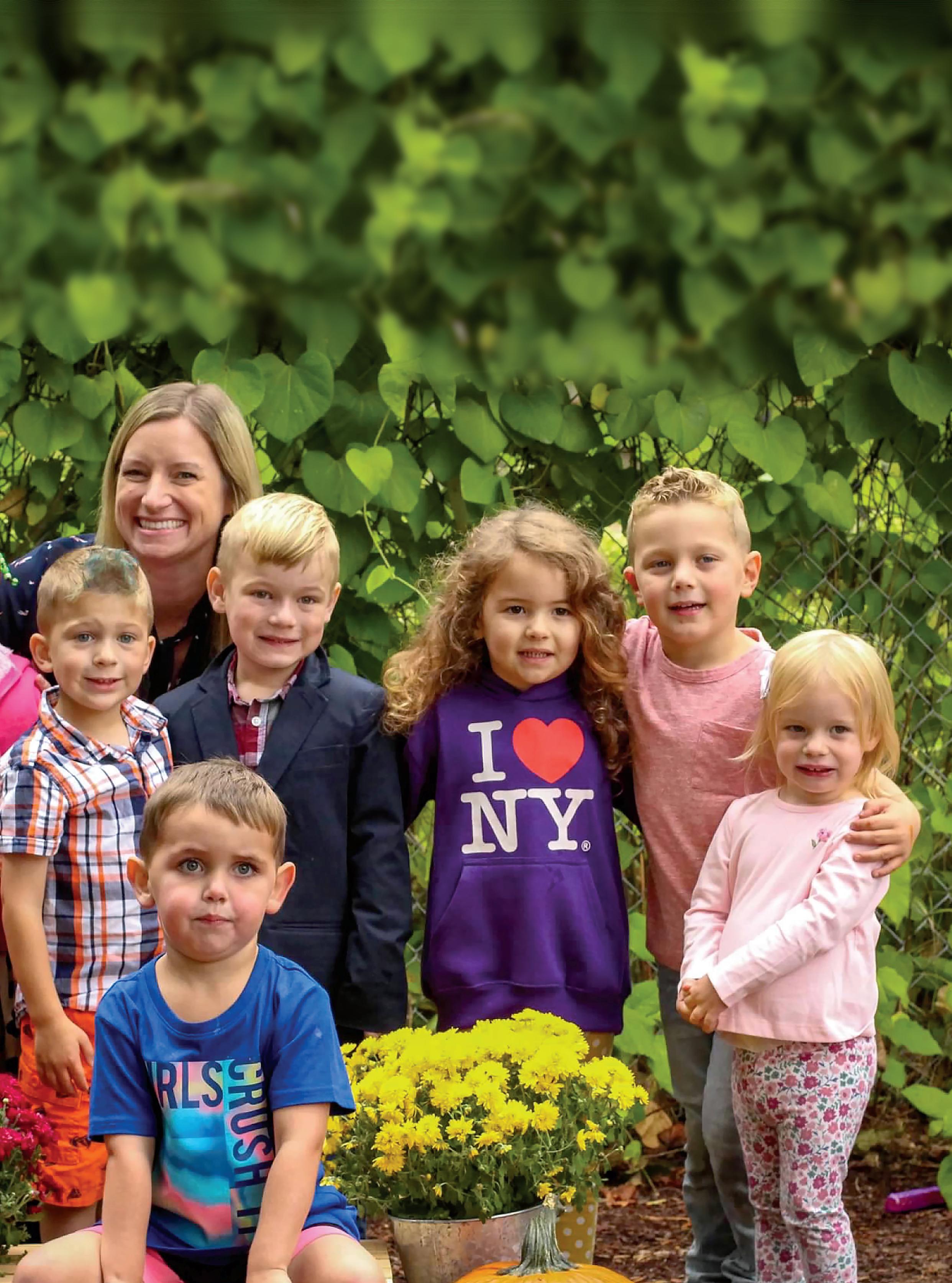
Waypoint was bestowed the Business and Industry Association’s 2020 New Hampshire Advantage Award, which celebrates businesses, organizations or projects that enhance the Granite State’s special character and quality of life in meaningful ways. The award was presented at the BIA’s annual celebration in October.
The agency was recognized not only for the scope and magnitude of its services, which provide a lifeline across the life span, but also for its pioneering spirit in meeting the needs of each new generation over the past 172 years.
Waypoint exemplifies our country’s long-standing tradition of providing private sector approaches to public problems.
“It’s an honor and privilege and also a responsibility,” says Borja Alvarez de Toledo, Waypoint president and CEO, of leading the agency. “Waypoint was really conceived to evolve and change to meet the needs of what we perceive as gaps in the system.”
Waypoint’s success in helping underserved and under-represented families in three different centuries is driven by staying connected, Alvarez de Toledo said.
“We provide services in the home and community. Our advocacy and partnership with the state and fellow providers, as well as with the people we serve, keeps us well informed about the changing needs of families.”
COVID-19 made it more difficult to provide in-home visits. Elderly clients had elevated risk for serious illness and death from COVID, and Waypoint suddenly needed personal protective equipment.
“In most cases, we were really the only people in their lives to provide activities of daily living to allow them to remain independent,” Alvarez de Toledo said. “We did a lot of advocacy for being a group that needed PPE.”
Waypoint is the state’s largest provider of services for unhoused youth and its outreach was also curbed.
“We found more youth were unhoused because of the pandemic,” he said. “We had more difficulties reaching out to them. Most don’t have a data plan and rely on public spaces. We were able to purchase phones and plans to continue to serve those youth.”
Waypoint’s pivots included getting state approval to offer telehealth and remote services. “That was really positive and something that has stayed,” Alvarez de Toledo said.
New Hampshire’s worker shortage has created challenges and opportunities. Waypoint is focused on staff retention, promoting from within and keeping employees satisfied and engaged. It now incorporates remote work and flexible schedules. Both, Alvarez de Toledo said, are here to stay.
“It’s made us a better organization,” he said.
But inflation is taking its toll.
“Our contracts’ rates of reimbursement don’t change because of inflation,” he said. “We have to make up the difference if we want to raise compensation for our staff and that’s really challenging. Social work is critically important in lives and communities, and the work is really complex. We believe social workers, like teachers, deserve fair wages.”
Waypoint’s funding includes local, state and federal contracts, United Way support, special events, foundation grants and philanthropy. Fundraising is ever more important. Alvarez de Toledo said $2.18 million, or 14% of Waypoint’s budget, was fundraised in 2020. “It’s a little scary,” he said.
Rising costs and funding struggles
‘‘Waypoint was conceived to evolve and change to meet the needs of what we perceive as gaps in the system.
’’
— Borja Alvarez de Toledo, Waypoint president & CEO
made Waypoint, like many nonprofits, more entrepreneurial. The annual SleepOut exemplifies this. The 2022 event, held in hybrid fashion, raised over $320,000 to tackle youth homelessness. Eight SleepOuts have collectively raised more than $2.1 million, which has allowed Waypoint to expand services to unhoused youth (see articles on new Youth Resource Centers and Overnight Emergency Shelter).
Expansion comes at a cost, though,
as government contracts don’t cover the cost of Waypoint’s services. “As we grow, we need to increase our fundraising,” he said.

Alvarez de Toledo maintains that reactive programs are far more expensive than proactive ones. New Hampshire, he said, historically has not appropriately funded prevention, but more government leaders now understand the need to invest in prevention to reduce reliance on services.
“It’s really exciting to see the pendulum shifting from reactive to proactive,” he said, ”but it takes convincing a lot of people.”
BIA’s annual dinner drew over 700 business and political leaders from around New Hampshire. The ceremony was presented by Eversource and the Advantage award was sponsored by Bank of America.

Over the past several months, 82,000 people throughout the Granite State voted among 2,800 businesses that were nominated as the BEST OF THE 603. In the nonprofit/service category, WAYPOINT GOT THE GOLD!
Produced by the Manchester Radio Group and presented by Fidium Fiber, BEST OF THE 603 is an annual statewide campaign to discover and celebrate the businesses, people and places Granite Staters love most, and recognize those who are doing exemplary work. Organizers point to the high voter turnout as a testament to how people feel about their favorite local businesses and the pride they have for New Hampshire.

Waypoint not only received the badge of honor, but will receive $12,000 of airtime to promote key messages throughout the year.
THANK YOU TO ALL WHO VOTED FOR WAYPOINT!
Waypoint has been reaccredited by the Council on Accreditation. Accreditation by COA is the highest achievement in social services and behavioral health care across the United States. COA accreditation is an objective, independent and reliable validation of an agency’s performance. The process involves a detailed analysis of an organization’s administration, management and service delivery functions against international standards of best practice. The standards driving accreditation ensure that services are well coordinated, culturally competent, evidence based, outcomes oriented, and provided by a skilled and supported workforce.
An agency that is COA accredited demonstrates accountability in the management of resources, sets standardized best-practice thresholds for service and administration, and increases organizational capacity and accountability by creating a framework for ongoing quality improvement.
Currently, Waypoint is the only social service agency in New Hampshire that is COA accredited.
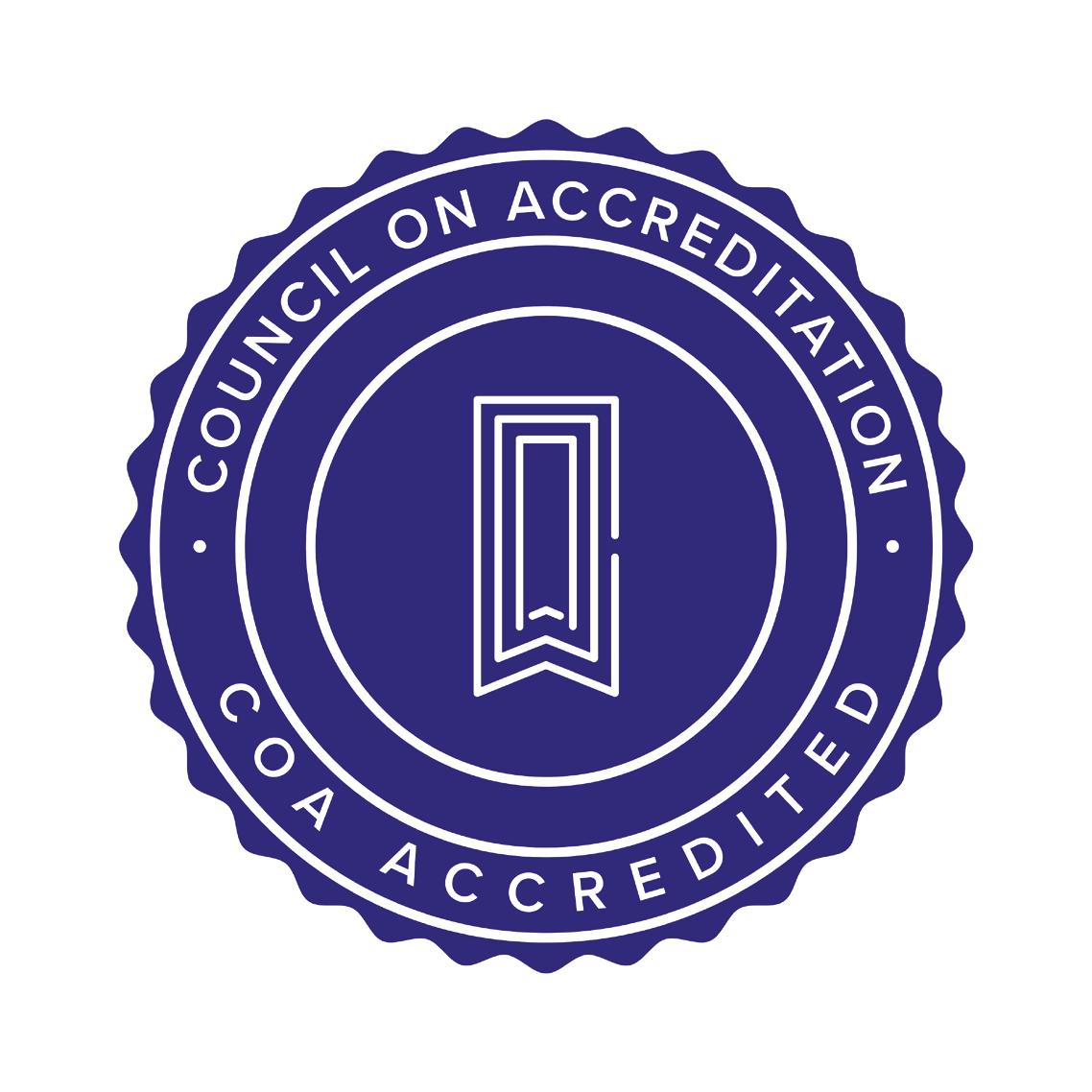
Waypoint’s 464 Chestnut Street location in Manchester is now a Family Resource Center of Quality (FRC-Q). The site was awarded this designation by the Wellness and Primary Prevention Council of the NH legislature.
Waypoint merited FRC-Q designation by demonstrating exemplary practice building family strengths. Over the past year, the agency engaged in ongoing self-assessment that included gathering feedback from participants and community partners, a site visit, and a lengthy application process submitted to the Wellness and Primary Prevention Council (WPPC) for review.
For as long as she could remember, Lina had a passion for helping others. Throughout her childhood, she would serve as a pillar of support for friends, caring deeply for her family and lending a hand whenever possible. Lina has long dreamed of turning this passion into a career and aspired to become a nurse.
After graduating from high school, Lina was expecting a child. She had not yet acquired her driver’s license and didn’t have the means to buy a car, so it wasn’t feasible to secure a job or get to and from work. Lina was living at home with her mom and raising her baby. She now had two life goals: being an independent role model to her child, and pursuing a career helping people during some of the most vulnerable moments in their lives.
There was no question that Lina had passion and drive. Now, she needed help with the obstacles.
Lina partnered with Waypoint’s Family Support program. She met with a case manager who sat with her to create goals and walked beside her as she navigated through them, offering encouragement along the way. With a plan of action, Lina’s first goal was to build her ability to provide her child with a loving home environment. Lina and her child benefitted from home visits, where a family support specialist came right to her house to provide support and education. And, at Waypoint’s Family Resource Center, Lina participated in parenting groups, play groups, and learned a lot about early childhood development and parenting techniques.
Lina’s case manager connected her with additional resources and community services; she now has a license and car. Lina graduated from her LNA training program having passed her exams with flying colors, and is on her way to a career in the medical field.
“Family Resource Centers throughout the state share that preparing to seek designation as a Family Resource Center of Quality has been affirming for their staff, illuminating to their board of directors and reassuring for the families they serve,” says Maria Doyle, manager of Family Support Programs at NH Children’s Trust and co-chair of the WPPC.
Waypoint-Manchester is the second of Waypoint’s sites to merit the “Q” status, with Nashua being the first. The designation may be renewed every three years. There are currently 12 FRC-Qs in New Hampshire.
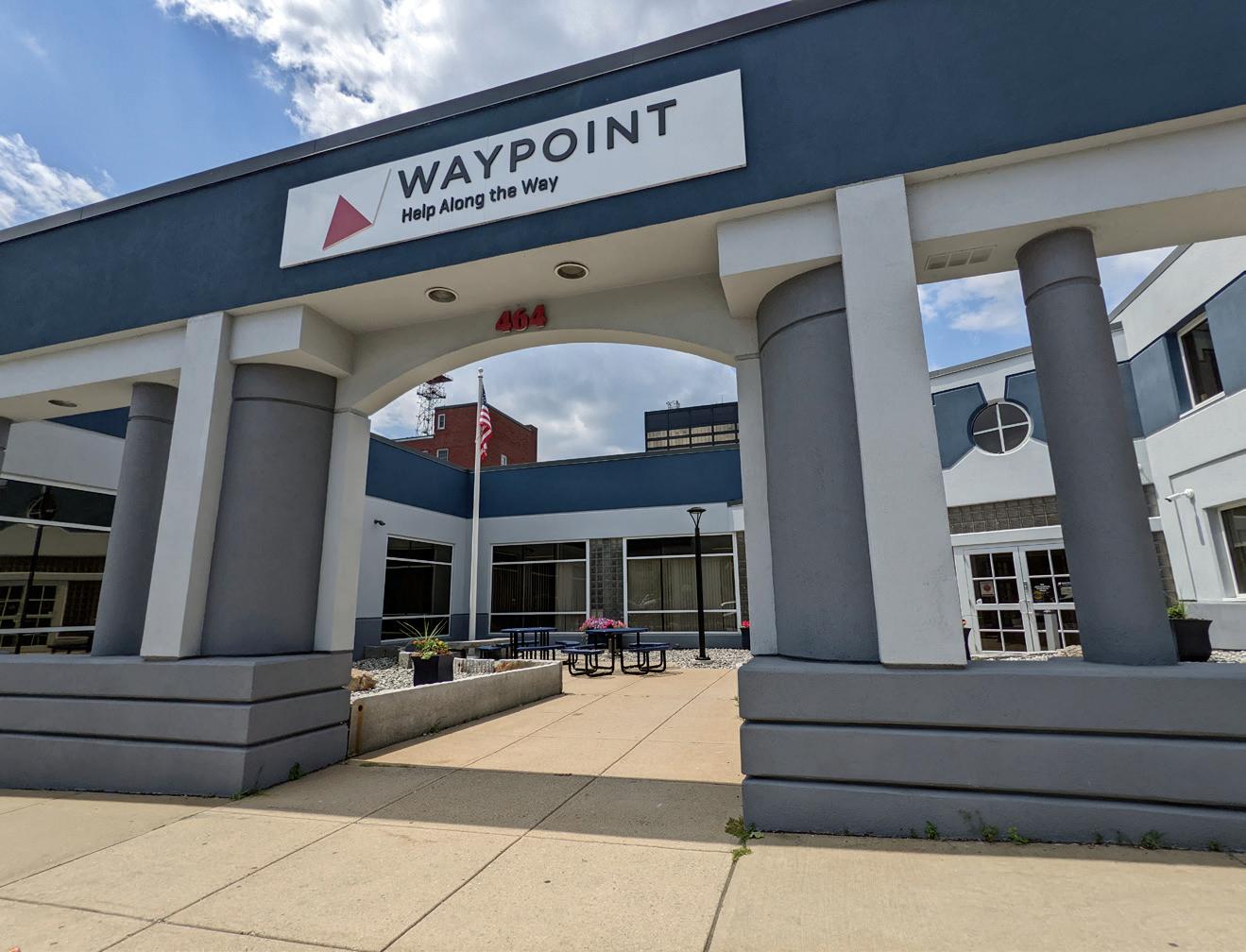
Extensive research indicates that financial, educational and material assistance lifts millions of Americans out of difficult circumstances. Emotional support plays an important role as well. When stressors are reduced, the educational attainment rates of parents tend to increase. This proven formula can have positive, long-term effects, such as strengthening core skills and supporting responsive relationships. Waypoint’s task is to create the conditions that help families thrive. Each year, Waypoint’s Family Support services help approximately 1,400 children and their parents or caregivers.
Today, Lina has recovered the self-sufficiency she values in herself. Her family is in a place of strength and resilience, and her bond with her child and family is stronger than ever. With a blossoming career, stable housing and a strong family unit, Lina has turned a childhood dream into reality.
‘‘
Waypoint is thrilled to have achieved this status as an FRC-Q in Manchester. For those of us in the family service field in New Hampshire, this designation represents our commitment to the people we serve with programs that are proven to have positive impact. The “Q” reassures our community that we adhere to the highest standards of practice.
’’
— Missy Oglebay, FRC coordinator and Family Support program supervisor
It’s hard not to be distracted by a picture that hangs on a corkboard behind Carrie Richer, one of five regional coordinators of Waypoint’s Partners in Health (PIH) program. A young man, about 15 years of age (and all smiles), sits in an adaptive sled that is used to play ice hockey, confidently defying the limits of his diagnosis of spinal muscular atrophy. A letter from his parents is attached, thanking Carrie for her help in securing this important piece of equipment that allows their son to thrive in his own unique way.
This is one example of hundreds like it that showcases the critical and life-affirming work of the Partners in Health program. Really, the name says it all. PIH coordinators partner with parents and caregivers of individuals who are diagnosed with a chronic health condition, to help them live their best life. This is defined differently from one client to the next. Says Janice Boudreau, health services supervisor, “We have funded everything from a special fire alarm for a hearing-impaired client, to the addition of a ramp at a client’s home, to campership funds for clients normally unable to attend these healthy recreational activities.”
Each year, the state of New Hampshire allocates funds to three separate pools within the program; flex funds, campership funds, and funds for needed environmental modifications (i.e. wheelchair-accessible ramps and vehicles). Every New Hampshire family that cares for a child with a chronic health condition, regardless of their income or health care access, is eligible to apply.
As is often the case with such programs, state funding can only stretch so far. Each coordinator is separately charged with the challenge of raising additional funds specific to each family’s needs. When additional funds were needed by one family to make their vehicle handicap accessible, Janice got creative and worked with a group of college students to organize a charity baseball game, in the end raising $9,000
Benefits of the program go far beyond financial assistance, however. Carrie explains that many families need help navigating the school systems and advocating for individual educational plans that meet the very specific needs of their
child. Coordinators also help families understand the complexities of the health care system as they address medical bills and sort through different eligibility parameters. Says Carrie, “Often when we first meet with parents, they have just received their child’s diagnosis, are still in a state of shock, and are not able to articulate or even conceptualize their needs. They are afraid to even dream for their child, so we try to bring hope back into the equation, and offer suggestions about the different ways they can use the funds to enrich their child’s everyday life.”
Recognizing the comfort in relating to one another, PIH coordinators also organize a few family- support events throughout the year, within their respective region, to give parents and caregivers the opportunity to come together and bond on their parallel journeys.
“It is always so refreshing for families to be in an environment, if only for a short time, that affirms their strength, empathizes with their struggles, and inspires them to get up and live it again tomorrow,” says Carrie.
On average, regional coordinators work with 40 to 50 families at a time. The need is significant, and the fulfillment of that need is life changing for hundreds of New Hampshire families each year. While pictures of smiling children and thank-you notes do much to empower the coordinators in their work, Janice says the best motivation is when “families that have been served refer other families in need. There is no better measure of our work. It feels good to know we made enough of a difference in their life that they want another family to reap the same benefits."
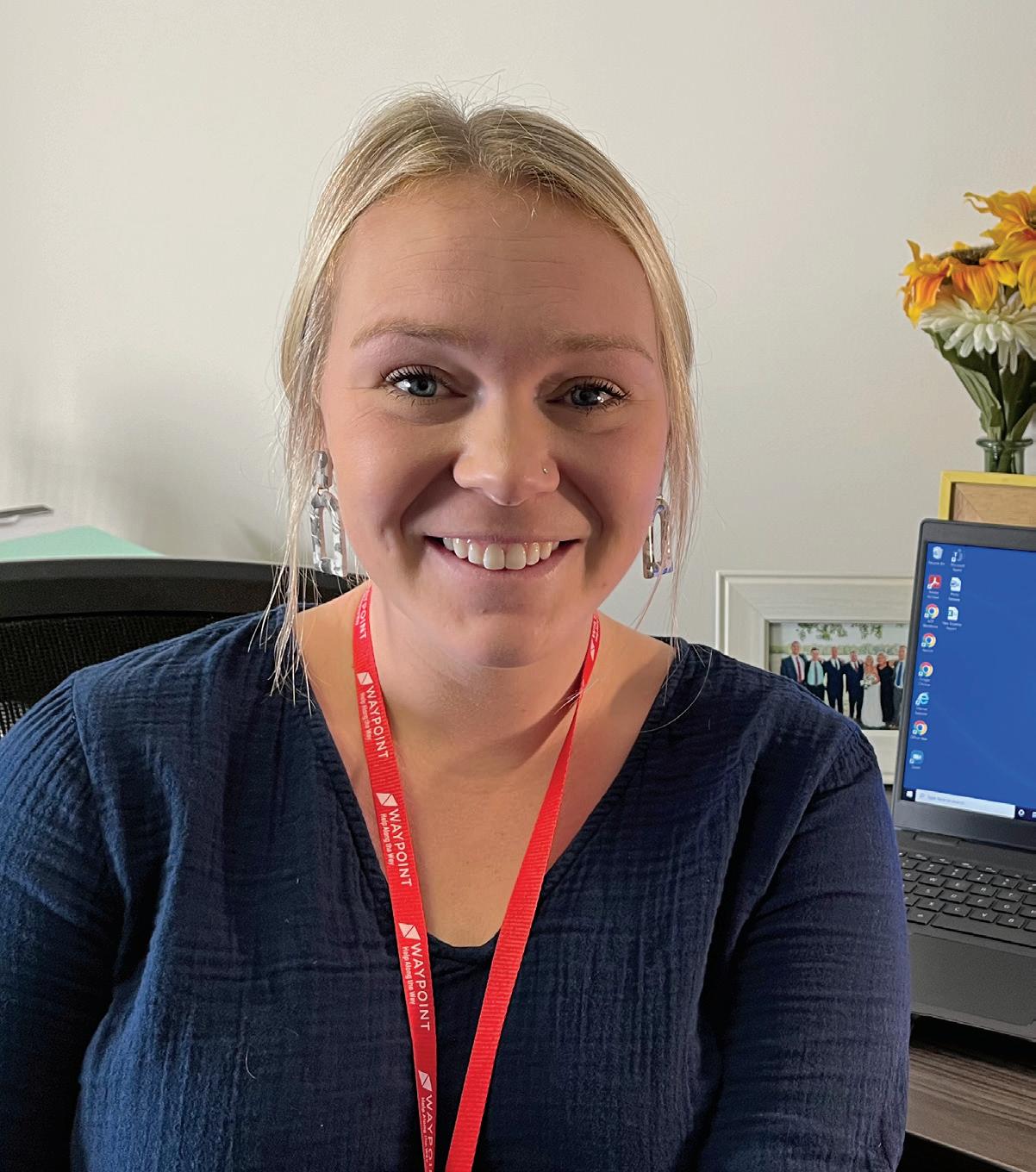
Carrie Richer helps kids who have chronic health conditions.
Exciting things are happening inside — and outside — at Waypoint at The Richie McFarland Center in Stratham! Plans are already underway for an amazing outdoor experiential learning classroom that will more than double the amount of space available for the children and families Waypoint supports. The agency plans to break ground on this project in spring 2023, with sights set on finishing the outdoor classroom space in the fall.
Waypoint is pursuing this unique space because there are so many benefits to an outdoor classroom. Studies show that children who play outdoors regularly are happier and healthier, have stronger immune systems, and experience improved sleep patterns. Outdoor play and exploration increase creativity, imagination and a sense of wonder, as well as a child’s ability to focus and pay attention. Children learn by engaging all their senses, and the outside world offers sights, sounds, smells and tactile experiences that are not available indoors.
Positive outdoor experiences also play a part in how children will value and care for our environment throughout their lives.

The Waypoint at The Richie McFarland Center campus in rural Stratham is the perfect location for an outdoor classroom. The site has an abundant outdoor space and gently rolling terrain for features such as water play and other sensorybased stations, a garden, a story circle, windchime fencing, a gazebo and so much more.
Thanks to an innovative and accessible design that is integrated into our natural surroundings, the fun of adventure and exploration in the fresh air will entice children of all abilities to play, explore and learn.
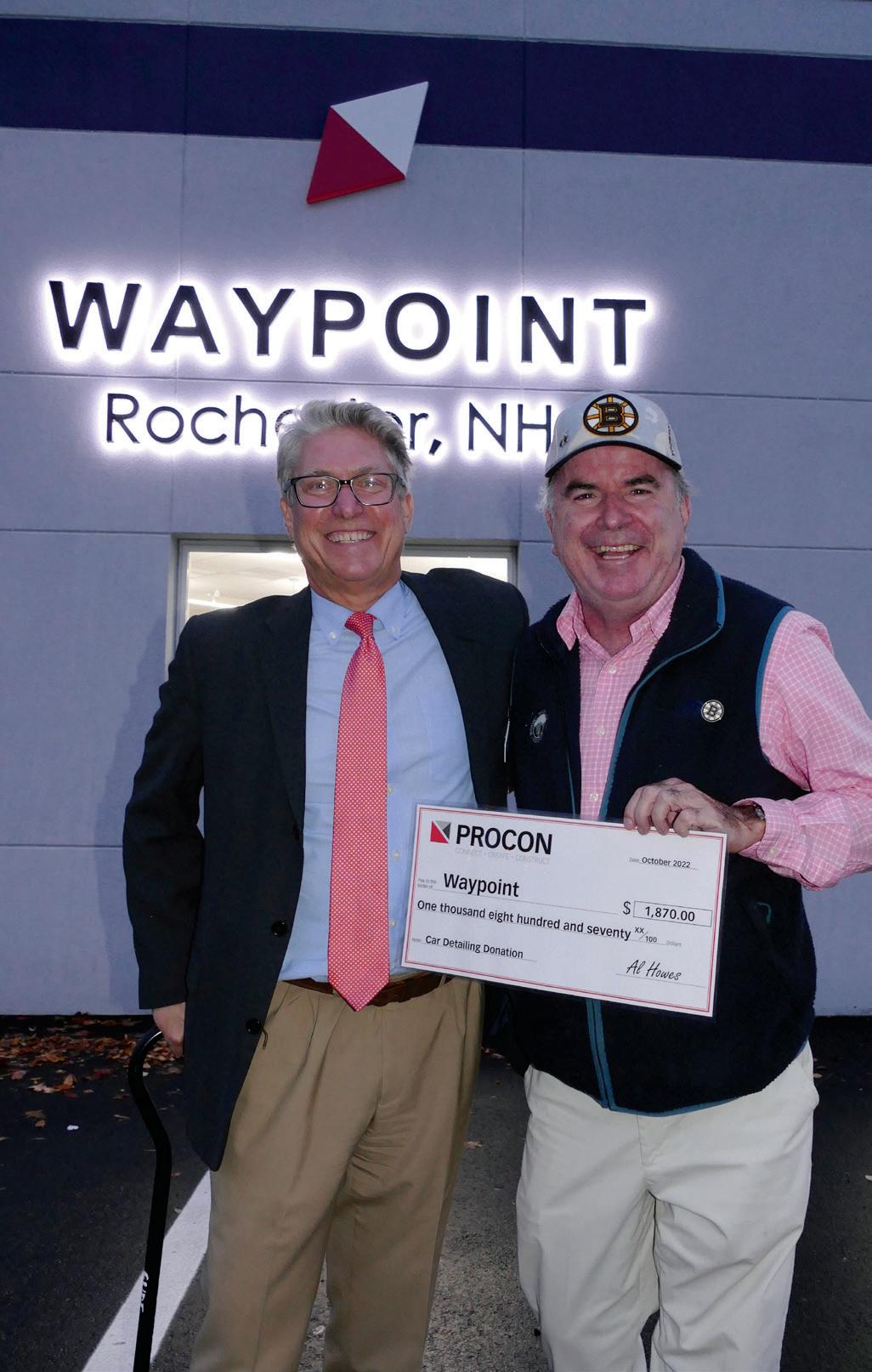
On October 31, 2022, Waypoint opened its new youth resource centers in Manchester and Rochester, and an overnight emergency shelter for young people experiencing homelessness in Manchester. The YRC in Rochester is located at 3 Wallace Street, and the YRC and shelter in Manchester is at 298 Hanover Street.
For years, Waypoint has been planning this expansion of services. The agency began confronting youth homelessness back in the 1970s and has grown its programs over the years to include Street Outreach, Runaway and Homeless Youth Services, Transitional Living Program, Rapid Rehousing, Youth Resource Centers, and now, the first and only overnight emergency shelter of its kind in New Hampshire.
Today, working in tandem with providers, advocates, law enforcement, supporters, legislators, and other partners, Waypoint is the only provider offering a comprehensive array of services for young people experiencing homelessness across New Hampshire.
It is estimated that over 14,000 young people will experience some form of homelessness in New Hampshire this year. On average, Waypoint makes approximately 1,500 contacts a year with such youth, providing the stuff with which to survive, and to succeed.
The YRC drop-in centers serve youth, ages 12-24, and provide access to basic needs such as a place to warm up or cool down, food, clothing, showers, and laundry. At the YRCs, youth can also work on goals, participate in independent living skills groups or recreational opportunities, and access intensive case management and other services.
The shelter houses 14 beds and will provide young people, ages 18-24, with low-barrier access to emergency beds and to all the services provided at the YRC during
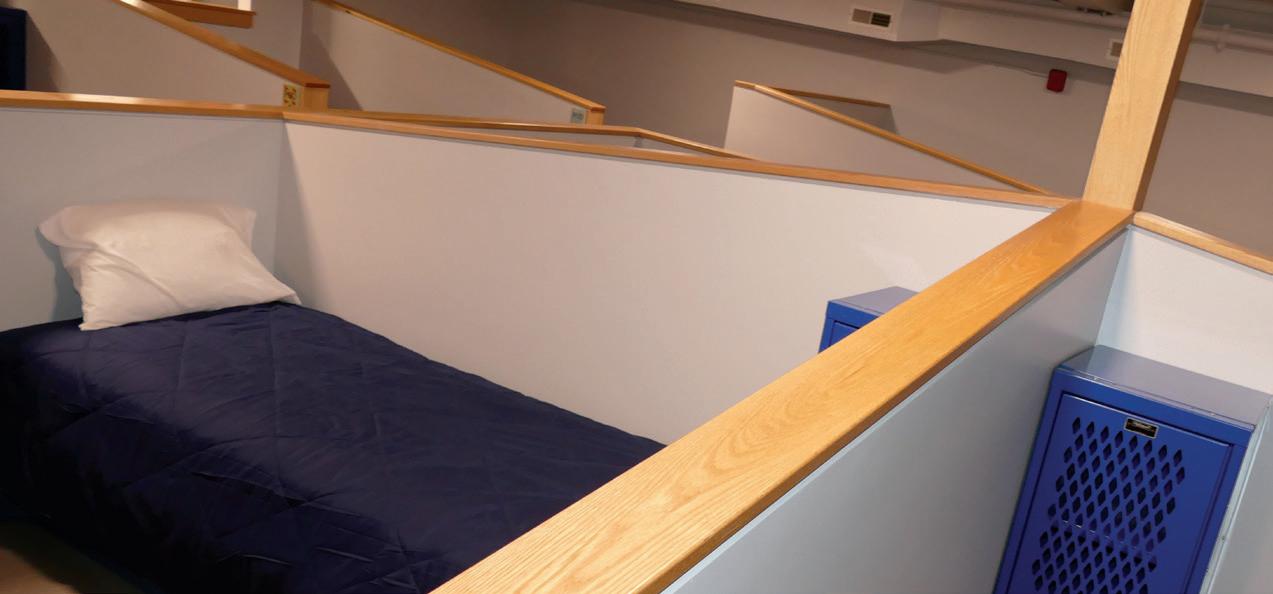
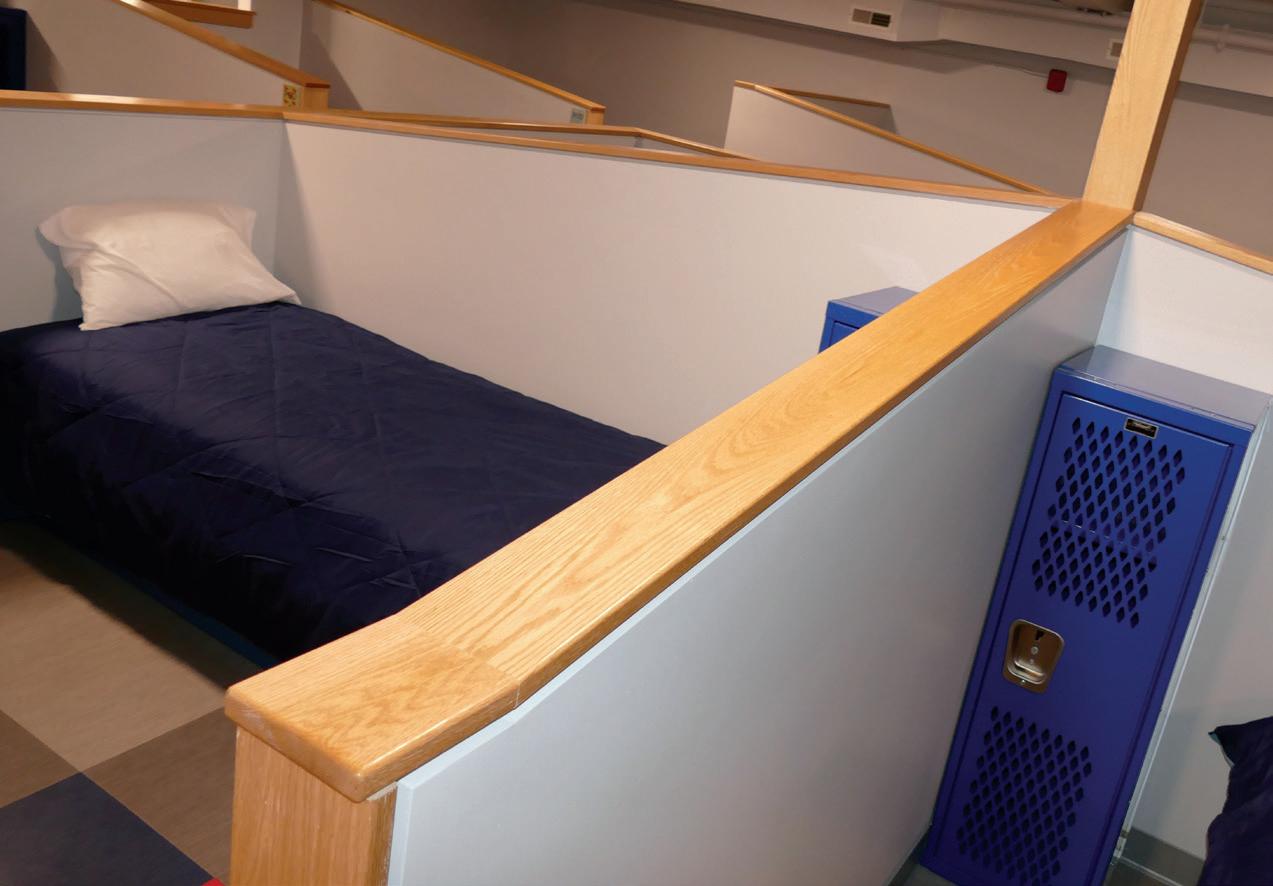
daytime hours. Until now, New Hampshire was the only state in New England without an overnight emergency shelter with a continuum of services dedicated to young people.
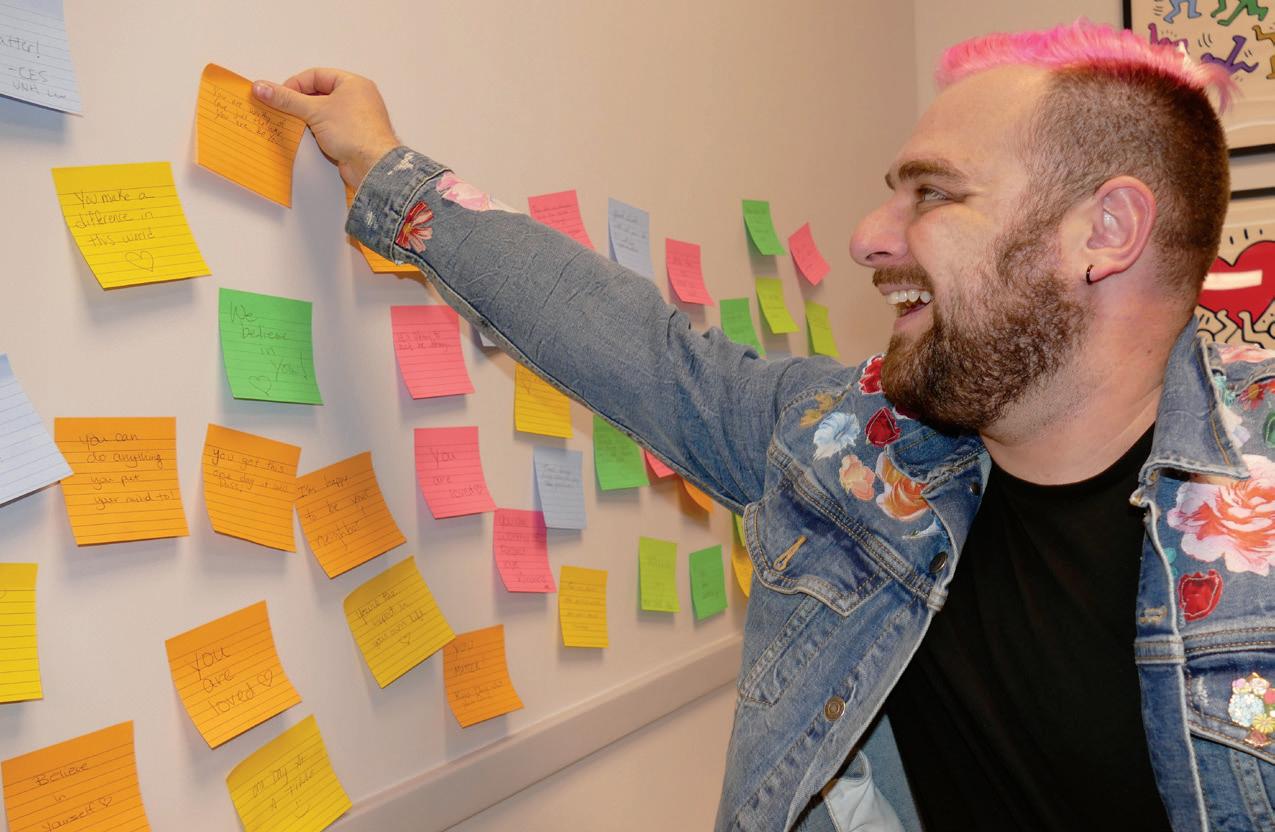
The Manchester site also includes three affordable apartments to help youth transition to permanent housing.
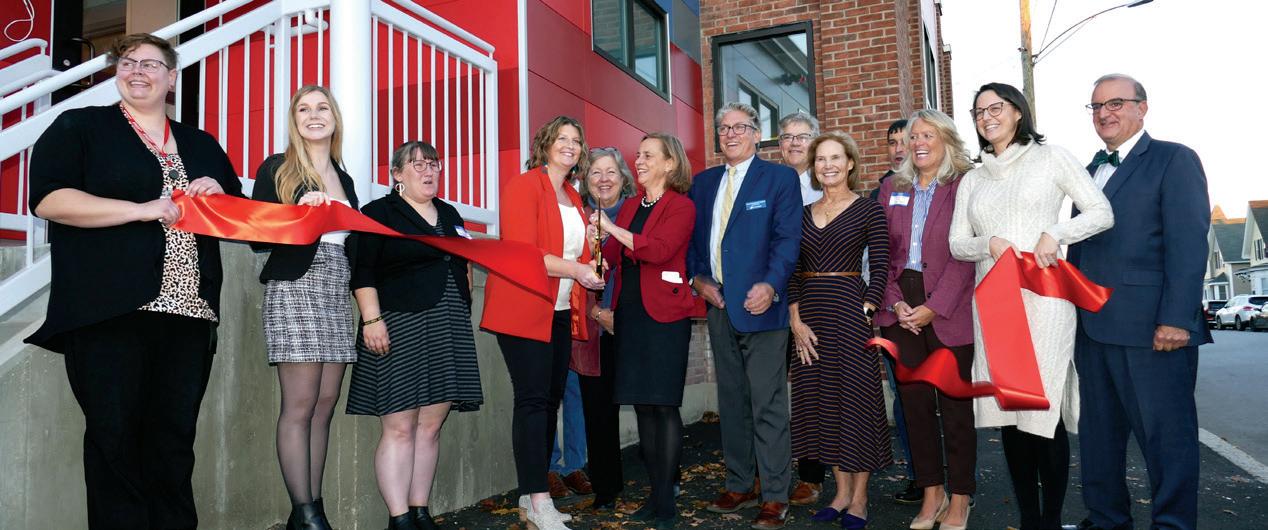
Design and construction of the Rochester site was by Tennant Goucher Architects and Ryan CM, and of the Manchester site by Cornerstone PDC, LLC; SMP Architecture; and Northpoint Engineering.
“This expansion is part of a comprehensive, coordinated, and collaborative response to youth and young adult homelessness in NH and will strengthen the statewide social safety net for our most vulnerable youth” says Borja Alvarez de Toledo, president and CEO of Waypoint. “And, it wouldn’t be possible without a strong, caring community to support it. We are forever grateful for the opportunity to help change the trajectory of so many young lives, and to get another step closer to ending youth homelessness in New Hampshire; this is our ultimate goal.”
The expansion project costs $3.5 million overall: $2.48 million in Manchester, and $1.07 million in Rochester. Funding comes from federal and local grants, private foundations, and donations. To date, lead funders include the cities of Manchester and Rochester, New Hampshire Charitable Foundation, the Stebbins Family, PROCON, and Cogswell Benevolent Trust. To see a full list, visit www.waypointnh.org.
APPROXIMATELY $750,000 IS STILL NEEDED TO COVER EXPANSION COSTS. THE AGENCY WILL LAUNCH A PUBLIC CAPITAL CAMPAIGN THROUGH WAYPOINTNH.ORG IN 2023 TO ENABLE MEMBERS OF THE COMMUNITY TO PLAY A PART.
Everything she owned was right there in a backpack and a small locker next to the bed where she would spend the night. A row of paints offered a little pop of color on her nightstand.
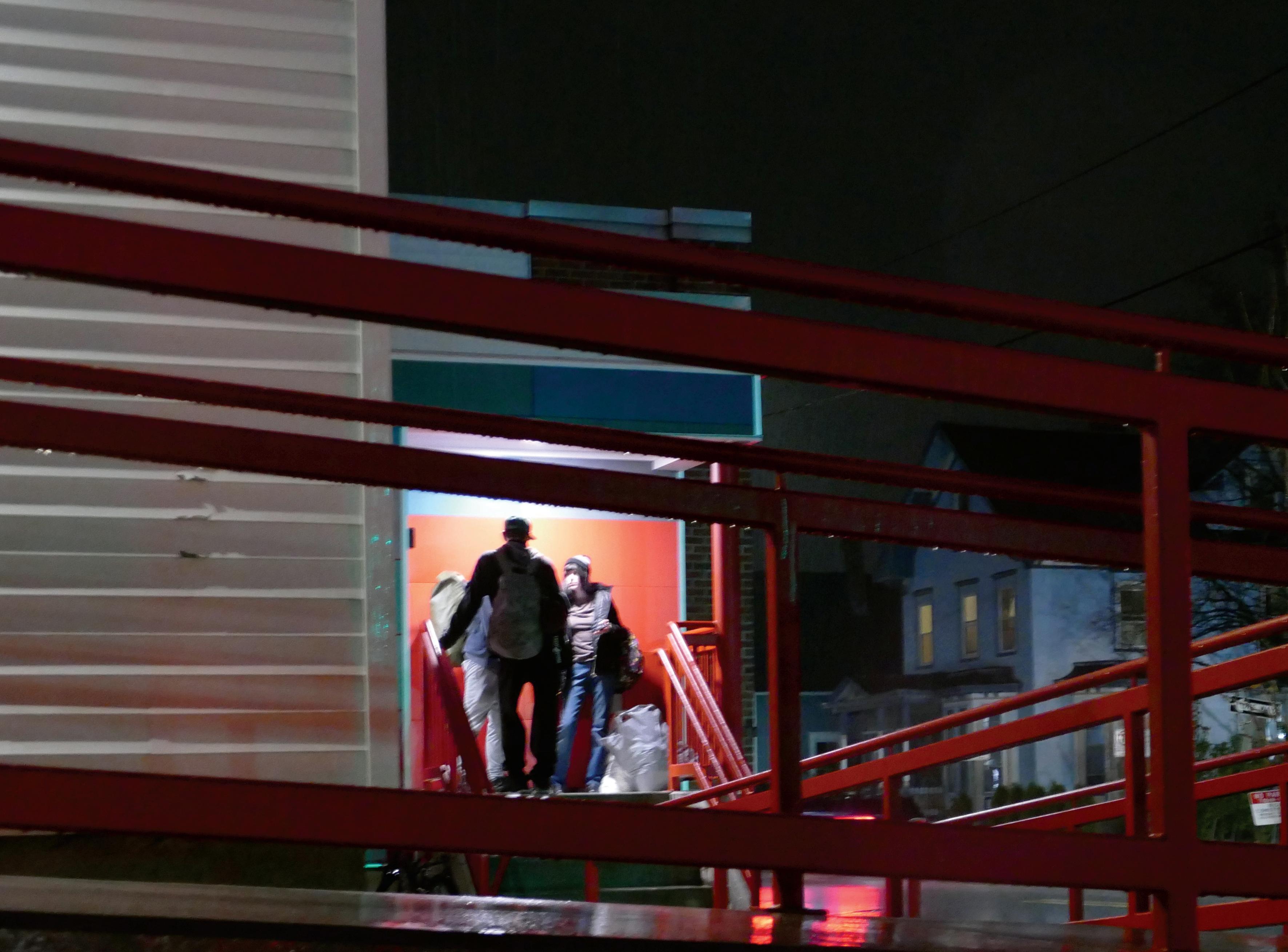
“I paint positive affirmations on rocks. I like to leave them around.”
Gretchen* was at Waypoint’s new youth resource center and overnight emergency shelter in Manchester. She sat in front of a computer screen, fretting. “I’m sorry this is taking so long … I get nervous. I want to be sure I’m doing this right.”
When she finally hit "send" on an application for housing, she turned around and exhaled, ready to share some of her story.
For the past few years, Gretchen’s mom has struggled with addiction and homelessness. “I lived in foster care and have been in rehab seven times.”
Gretchen shifted restlessly in her chair, flipping her hat from front to back, front to back, up, down.
It was not so long ago that she was tenting a few miles from Waypoint’s old location when it was just a drop-in center during weekdays at daytime hours.
“I’m bipolar. I would walk to the hospital for appointments, then walk to Waypoint when they were open. It’s hard juggling survival needs. I’d walk to get clothing, walk to take a shower, walk to get food. You hit a certain level of (she struggled to find
the word) … humility.”
“You learn survival,” she said. “You gotta have the drive, cuz, what do they say? Survival of the fittest, ingenuity at its finest, right?
“I mean, I must have thrown a hundred tantrums. Throw my stuff on the street, then think, oh my God, I don’t want to die. Then, realize I have to pick myself up.”
Gretchen remembered the first time she made her way to Waypoint. “It was winter. I just got out of the hospital, and I remember walking here in the cold. I figured, I had to act like … BE an adult.

“Staff greeted me like I was welcome here. I’m really a skeptical person, but they were really supportive and understanding. I
guess, kinda like family.”
In constant motion, Gretchen smiled throughout the telling.

“Waypoint got me a housing voucher. I’ve been looking for an apartment. I want to get stability and get back to school. You know, I started college, but then at 18, I was homeless.”
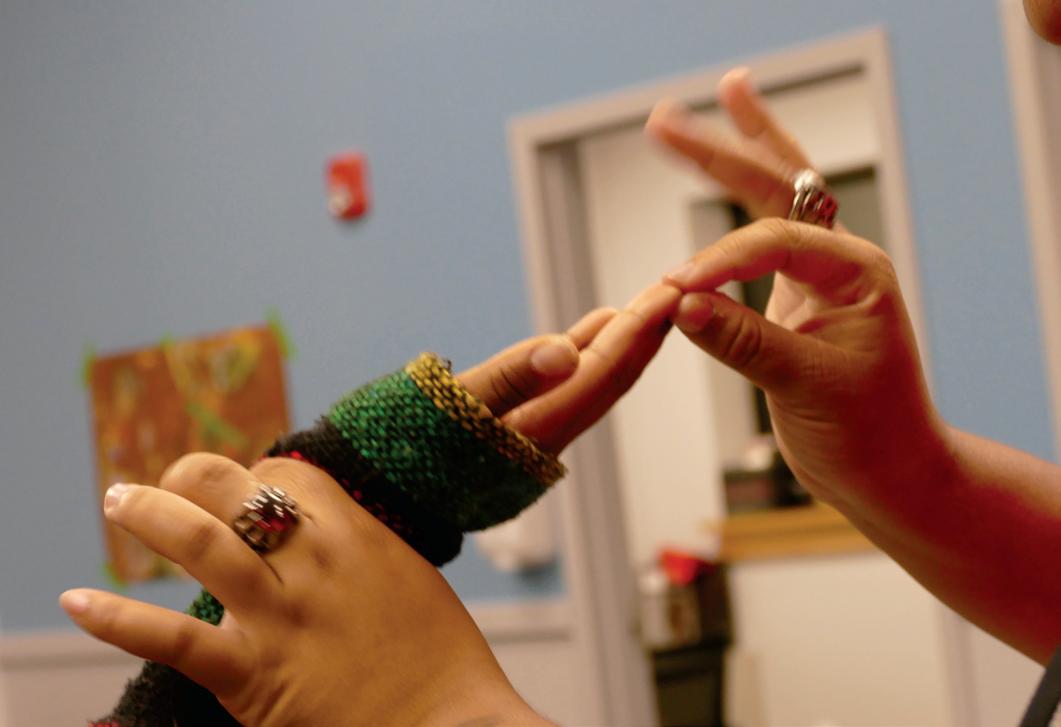
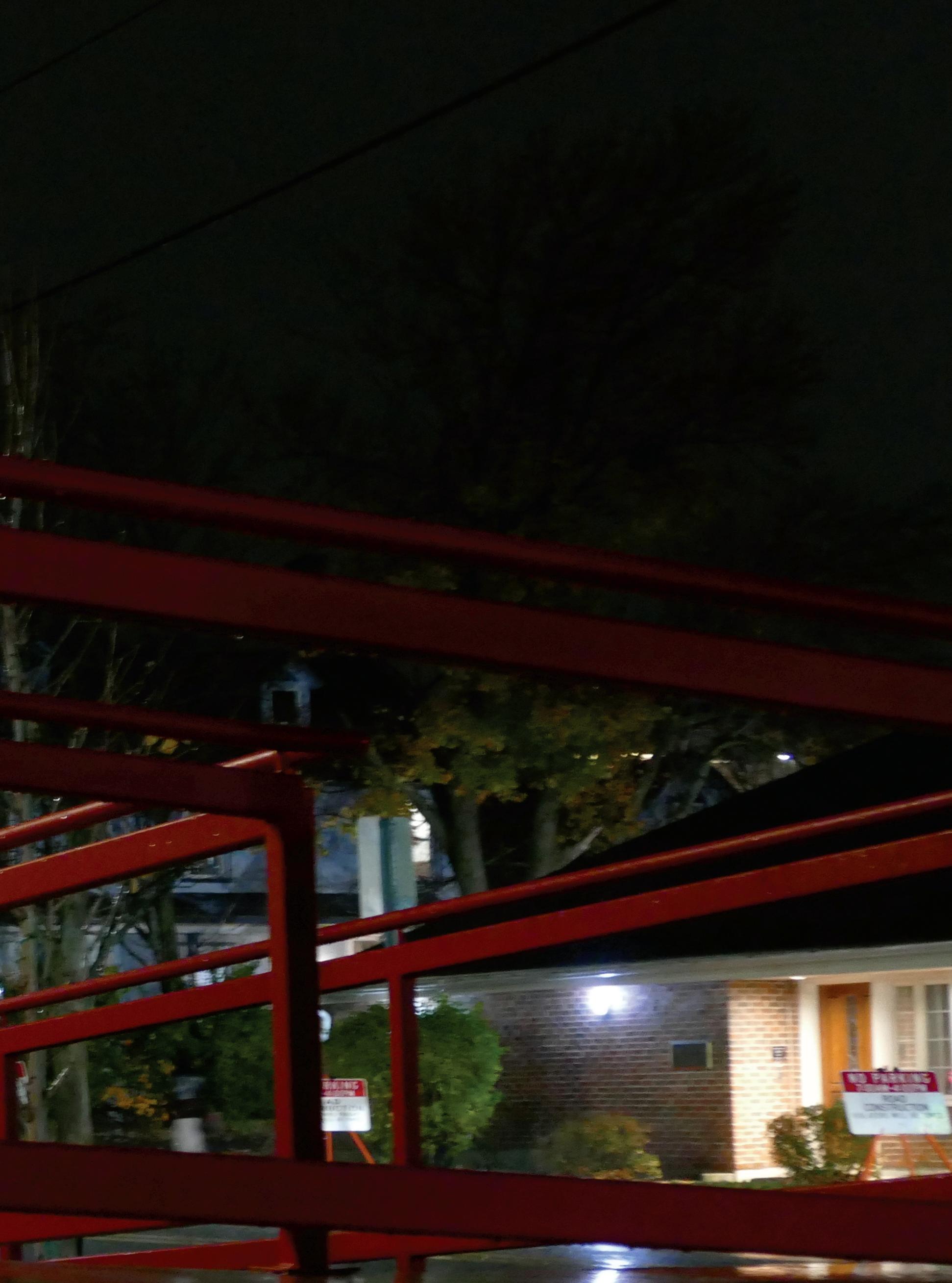
Gretchen is interested in studying environmental science and welding. “I loved it. Knowledge is power, right?”
But, on the flip side, she realizes that she has to work to keep herself on track. “I’m the definition of chaos. I have to have a planner. I have to color-code stuff.”
At that point in the interview, it started to rain. Gretchen looked

around and looked out the window: “I have to go pick up my medication.”
She spun in her chair and was suddenly facing the wall behind her, which was full of colorful post-it notes with little messages on them from friends and supporters; positive affirmations like “We believe in you.” She smiled and with a breath and a bit of self-reassurance, said, “I try to make the best of things.”
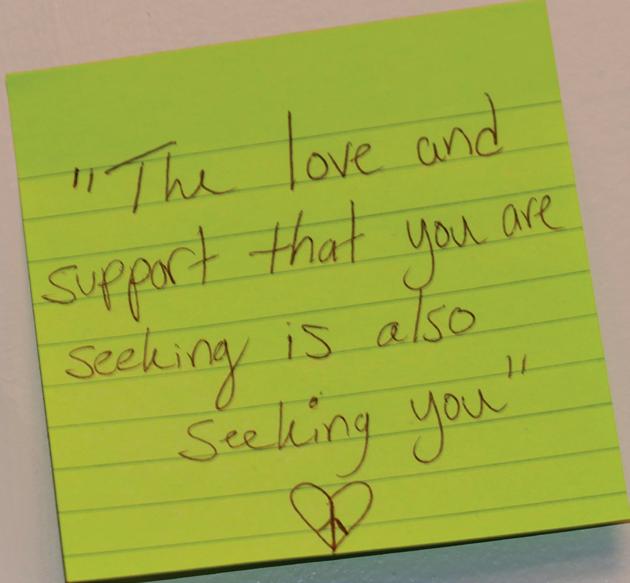
...............
Gretchen is just one of the young people who came through the doors of the center in Manchester today, and is staying at the shelter tonight.
On October 31, Waypoint opened a Youth Resource Center (YRC) on 3 Wallace Street, Rochester, and a YRC and overnight emergency shelter at 298 Hanover Street, Manchester. The shelter is the only one of its kind for young people in New Hampshire.
In Manchester, the drop-in center is open 24/7. The shelter downstairs opens at 6:30 p.m., and youth must be out of it by 9:30 the next morning. They may stay in the center upstairs if they’d like, where they can access the food pantry, computers, clothing closet, showers and laundry, and case managers to help them with their next steps. The center is bright and airy, and open-concept, with space for privacy, quiet time and social interactions. All around are reminders that you can be you ... no judgments. Love, respect and care abound. And the possibilities are endless.
On the first night at the shelter, most of the 14 beds were filled, and several of those staying there asked for early wake-up calls so they could get to their jobs.
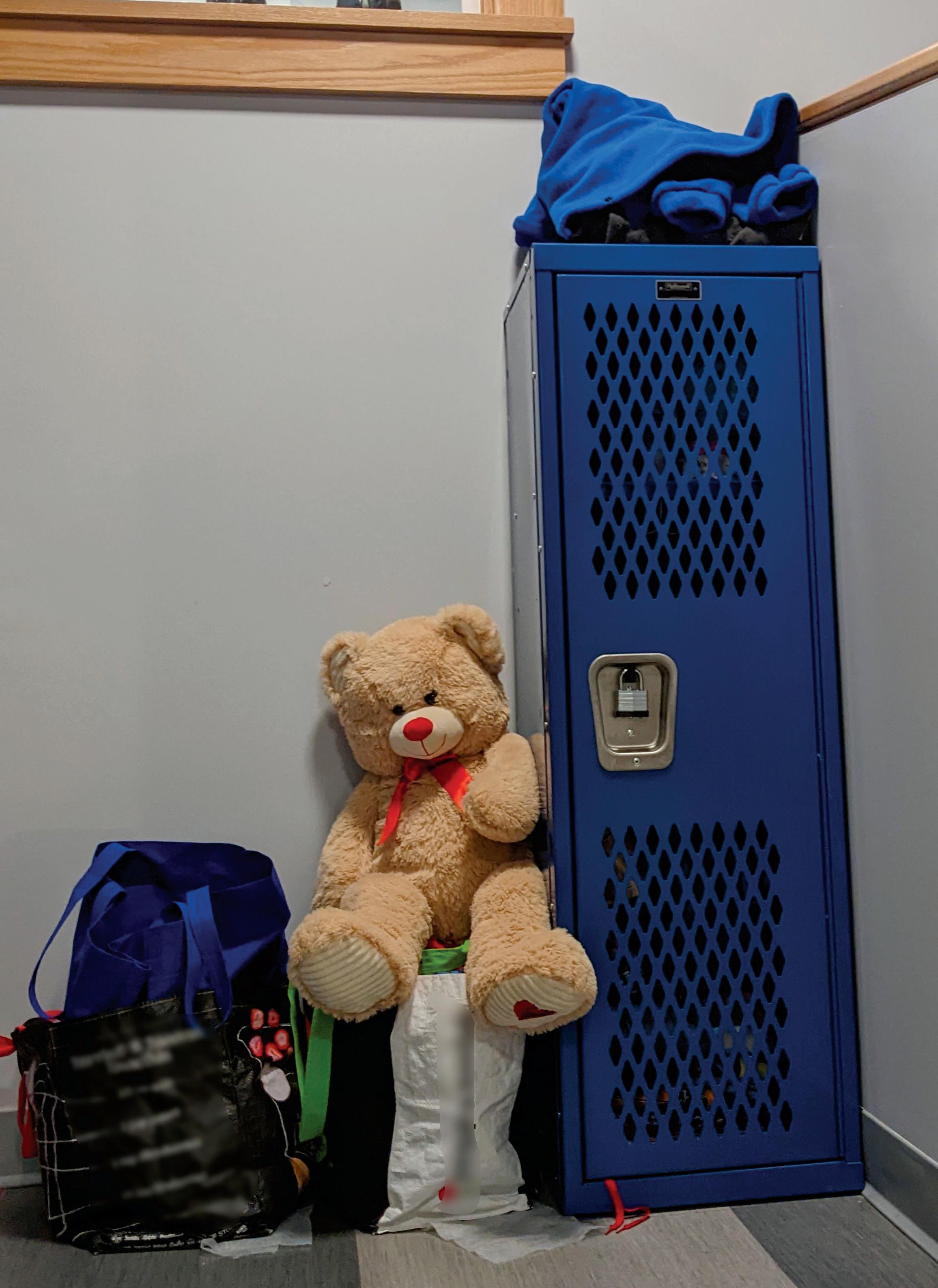
...............
Ramona* was also at the center today. She shared her interest in
Steven is another young person staying here tonight. He was engrossed in a serious chess game this afternoon, while listening to music on his cellphone; he was eager to share his music and educate this listener about the artists and the musical genres that are the soundtrack of his generation. He even seemed open to learning about a “new” artist from a previous generation. “Led WHO?” he said as he took his first venture into classic rock. But after about the first five seconds of Led Zeppelin’s "Kashmir," he flipped back to his comfort zone: rap and hip-hop. This afternoon at the center, he was mostly engaging with a peer worker. He is one of the lucky ones to be spending the night in the shelter. As it neared the time that the shelter doors would open, Steven started in that direction, moving into the night with the volume up on the next song in his play list: Doobie’s "When the Drugs Don’t Work."
‘‘ But you don’t lose your humanity just because you’re struggling. You’re still a human being. And you’re worthy. ’’
— Sarah Jones, center manager
photography in between being wowed by the magic tricks of peer worker, Dasean. Despite her gentle smile and easy demeanor, like everyone else, she has a backstory. She explained that there is a lot of mental illness in her family. She alluded to a history of trauma and a medical condition. You don’t usually hear such advanced medical terminology coming out of the mouth of one so young. But Ramona seemed wise beyond her years.
“I worked so hard,” Ramona says of her time holding down three jobs while she was in college.
But as her family life unraveled, it seemed all for naught; she was living out of her car while trying to hang on to her sanity and her dreams. When this shelter finally opened, she saw the pathway clearing. “I can breathe easier now. I can rest at night.”
On Monday, Ramona’s paperwork for housing will be filed, “and then I can make it on my own. I can take care of myself and my mental health, and start working on goals.”
Ramona has an idea for her future: “I want to create mental health coloring books” to serve as sort of a therapeutic tool for those who are struggling.
“I also want to make music,” she says, headphones hanging around her neck — the last song to stream through them being "Higher Self."
While she is grateful for the opportunity to have a safe place to stay tonight, when Ramona lays her head down, she will likely lay awake for a while “thinking about my family. I worry about them. They have lots of issues, like me. How can I help them when I don’t even know what I’m doing?”
...............
In this one afternoon, young people from all walks of life came through the center doors, each with their own unique story and their own questions about their place in the world. ...............
Later in the day, for a few moments, it got quiet enough to hear a soft crying.
It was a young woman who had just found Waypoint again, having gone off the radar long before the move. She walked up behind Sarah Jones, center manager, laid her head on Sarah’s shoulder and held up her cellphone. She stared at it for a long time, looking at an image of her daughter who had just been taken away from her. Today was her birthday.
“She’s beautiful, like her mama,” said Sarah. But it was hard for the young woman to understand why this was happening since she’s been trying so hard to overcome addiction and get her life together. It seemed that the world was kicking her while she was down.
After a while, she wiped her face, lifted herself up and said “Thank you for listening.”
The shelter was at capacity on this night; no room for her. So, she gathered her stuff and exited. Outside, she stood at the top of the steps to the center for a long time ... likely weighing her options for the night as the rain came down a little harder.
...............
“Every day we have to say ‘Hope to see you tomorrow,’” says Sarah. For her and the rest of the staff here, opening the shelter and being able to offer a bed to everyone on the list that first night was a long overdue dream come true. “All were asleep by 8:30. Everyone was so tired.”
Sarah explains that for some, “we’re the only safe adults they have. A lot of those who come here know each other, have been in placements together, and for whatever reason, can’t be with family.” Nearly 90% of the youth we see have experienced trauma.
At the top of the list of the prob-
lems they face, there’s mental illness, being rejected for their sexual orientation or identity, and substance use disorder.
“But you don’t lose your humanity just because you’re struggling. You’re still a human being. And you’re worthy.”
Sarah sees this place as a catalyst for change. Whether it’s help with processing emotions, taking care of basic needs, applying for a job or housing, getting an education, getting sober, navigating the challenging time on the threshold of adulthood without the benefit of parents ... this environment can make it happen.
“These young people WANT to do well,” Sarah says. “They don’t want to be stuck. We have young people here who are striving ... one is going for their real-estate license, another going into cosmetology school, and another taking driver’s ed. The capacity for change is great. These youth have potential. Yes, there’s a lot of trauma to overcome, but in the days here, there’s also a lot of beauty, laughter and hope.”
...............
As nightfall came, two more young people walked up the steps to this new place where they would stay the night; the lucky ones, on the list. Just days ago, they dwelled in places not fit for human habitation, wedged between fear and hope as they counted the days for the shelter to open.
And then came Gretchen, returning with her meds; one more accomplishment today. She shook rainwater off her hood as she walked past the welcome window where one of her painted rocks was featured displaying the word SMILE. Grateful to be “home.” ■
*Names changed to protect confidentiality

Adire shortage of youth counselors at the Sununu Youth Services Center in Manchester has escalated routine behavior issues to police calls and prompted an “all call” to any Department of Health and Human Services worker willing to pick up an overtime shift, department officials said.

These challenges come as the detention center is set to close in March with no replacement plan and sharp disagreement among lawmakers over where displaced youth should go. That debate is likely to continue next session with new legislation calling for an 18-bed facility, a proposal that failed in the final days of the previous session.
The option of sending children to county jails has been a renewed topic of conversation, but is strongly opposed by jail superintendents, Health and Human Services, the Office of the Child Advocate, a group of six child advocate agencies and the lawmaker behind the new bill.
Lori Weaver, the deputy commissioner of Health and Human Services, told the House Health and Human Services Oversight Committee recently that without a plan in place, the residents, ages 13 to 17, could be moved to similar facilities out of state, though few if any have openings, or released from custody.

“I hope I don’t see that day,” Weaver said. “I guess I would say that I think it would be a real problem if we had nowhere for the youth (to go) that are there. As many of you know, those are some of our most challenged youth.”
In a statement, the Juvenile Reform Policy Group agreed. The group’s members — Waypoint, New Hampshire Legal Assistance, New Futures, Disability Rights Center-NH, ACLU of New Hampshire, and Children’s Legal Services NH — worked with lawmakers in support of last year’s bill.
“The consequences would be catastrophic,” the
statement said. “We know from New Hampshire’s own history that children who are physically secluded from the outside world are among the state’s most vulnerable population. While they are some of our most challenging children, with few exceptions they also enter the facility having experienced lifetimes of trauma. They are both worthy of and capable of rehabilitation.”

The group pointed to Vermont, which closed its juvenile detention facility in 2020, saying those residents have been isolated in motel rooms and sent out of state, away from families.

The Sununu Youth Services Center, which can hold 144 children ordered held by courts, averages 12 residents a day but fluctuates between eight and 15 at a cost of $13 million a year. The center’s pending closure and uncertain future has led some staff to resign for jobs with more certainty and has also hampered employee recruitment efforts, said Joe Ribsam, director of the Division for Children, Youth and Families, in an interview.
“Youth counselor positions are the front line,” Ribsam said. “To run that facility, we need (the equivalent of) 45 full-time (workers). “Right now we have a little over 20. That is what puts us in this really awful situation.”
Ribsam said about 60 department staff members have expressed interest in picking up shifts for overtime pay since the department announced the opportunity last week. Staff deemed eligible will be trained, including on deescalation techniques, and shadow a youth counselor before working alone, he said.
Ribsam said that managing routine behavioral issues, such as refusal to cooperate with instructions, has become so challenging due to staff shortages that police assistance has been requested during the past two months. That’s a first in the five years he’s been with the department, he said. Since then, the department has arranged for troopers to occasionally come by to “normalize” their presence.
Cassandra Sanchez, the state’s child advocate, said
the center also needs to fully staff its clinical team, which has advanced mental health training. She called the use of state troopers a “creative” choice in the short term, not a replacement for clinically trained counselors.
“They have to have knowledge of the children, their background, what their triggers may be, and be able to walk them through a situation or talk them down in a situation,” she said.
This is not the situation the department or lawmakers anticipated when the House and Senate voted in 2021 to close the center by March 2023.
In January, Sen. Gary Daniels, a Milford Republican who led a study committee that investigated replacement options, filed a bill proposing a new facility or facilities that could house up to 18 residents but would receive funding to care for only six children regularly and an additional six for “short periods of time.”
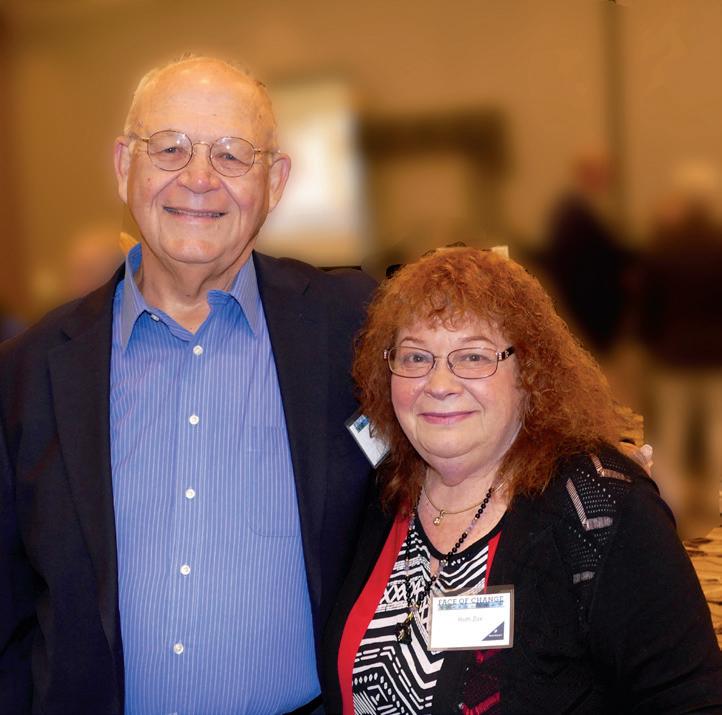
The proposal, which emphasized treatment over detention, was in line with an analysis commissioned by Health and Human Services, and Sanchez said other states that are using jails for their juveniles were looking at New Hampshire as a model to follow. She said those states were seeing more fights, aggression and sexual abuse.
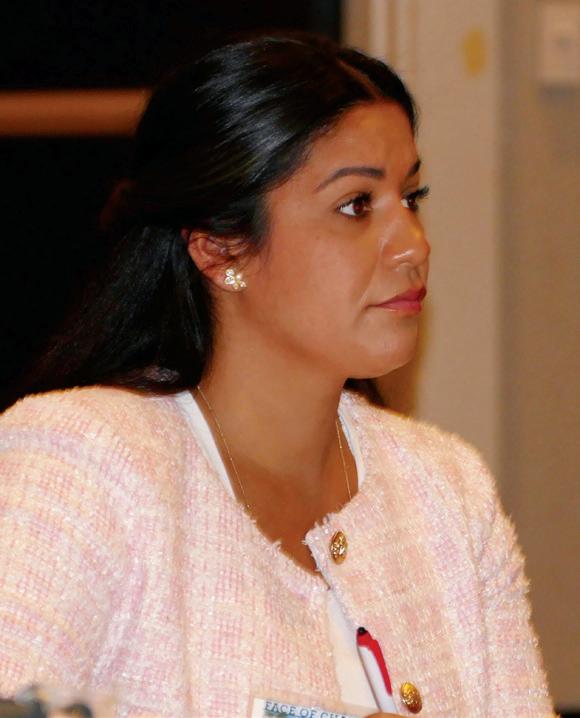
The bill was amended and ultimately failed over six beds: The House insisted on a maximum of 12 beds; the Senate wanted 12 with an option of adding six, if needed, to space children out.
Lawmakers will return in January with just three months to resolve the situation.
Rep. Jess Edwards, an Auburn Republican, is working on a
bill that would extend the closing date by three months and give the department $1.5 million to continue operating until then.
Edwards said he knows three months is not enough and is prepared to extend it again. Sanchez believes building a new facility could take longer than a year, given supply chain issues and the lengthy process the state must follow to contract with consultants and builders.
Edwards said he will also file a bill that would replace the center with an 18-bed “trauma-informed” facility that is secure but also would support therapeutic care in a home-like environment. It would be funded, however, for just 12 to 14 residents. Edwards said the additional space is intended to give the department more room to separate kids.
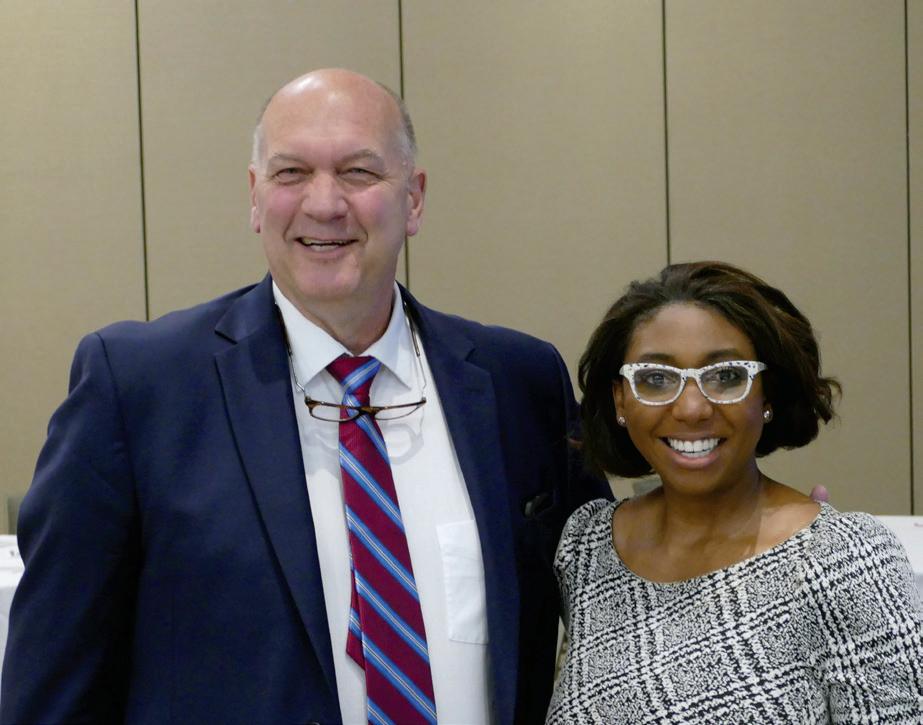
Ribsam said the department supports the plan and is optimistic it will succeed this time. Sanchez is hoping to see a bipartisan group of lawmakers make it a priority and move it through successfully this time. She’s urging those making decisions to visit the detention center.
'I
kids),' Ribsam said. 'They are very intelligent.'
"We check with them monthly," she added. "They are very insightful. They can tell us what they need for treatment.”

The Juvenile Reform Policy Group said it is hopeful, too.
“During the last legislative session, House and Senate leadership demonstrated their commitment to moving forward

As a way to mark the 50th anniversary of Waypoint’s Advocacy program, the Agency presented a conference in June titled FACE OF CHANGE: The New Age of Child Advocacy. The event attracted 140 advocates, legislators, human service agents and other professionals to explore the future of child advocacy with an eye-opening perspective on child abuse prevention.
Face of Change featured Taylor Bryan Turner of SAMHSA (Substance Abuse and Mental Health Services Administration) as the keynote speaker. Panelists included Joe Ribsam of NH Division for Children, Youth and Families; Kim Firth of the Endowment for Health; Rob Dapice of NH Housing Finance Authority; and Honorable Susan Ashley of New Hampshire Circuit Court.
Clockwise: Cassandra Sanchez, NH Office of Child Advocate • Joe Ribsam, director of NH Division for Children, Youth and Families • Keith Kuenning, director of the Advocacy program, and keynote speaker, Taylor Bryan Turner of SAMHSA • Jack Lightfoot and Ruth Zax, former Waypoint (CFS) staff.
think it’s really helpful for people to take the time and go and hear from (the
a small facility grounded in a trauma-informed and evidencebased approach designed for the small number of children who require treatment in a secure facility,” it said. “We are optimistic that the groundwork is laid to reach the finish line this legislative session.”
Asked why a proposal that failed last time would succeed now, Edwards said lawmakers will have more time to debate it and get input from stakeholders; the prior bill fell apart over amendments made weeks before the session ended.
There’s another change. The House member who wouldn’t budge on a cap of 12 beds, Rep. Kimberly Rice, a Hudson Republican, is not seeking reelection.
Relocating the youth to county jails is a second option that appears likely to go nowhere, even temporarily while the state builds a new facility. Health and Human Services Commissioner Lori Shibinette asked jail officials for their position on caring for juvenile offenders, to get input and not because she supports the idea, department spokesman Jake Leon said in an email.
“Although the superintendents came to the table to collaborate, all parties agreed that sending youth to county facilities is not possible under current law and that it is not in the best interest of the youth and families we serve,” Leon said. “The department does not support placing youth in an adult facility.” He said it remains committed to the plan that would create a therapeutic, not correctional, setting.
The jail superintendents opposed the idea when it was raised last session. Their position hasn’t changed for many reasons, said Jason Henry, superintendent of the Rockingham County jail.
Under federal law, adults and juveniles must be separated by both “sight and sound.” Henry said retrofitting jails to meet those regulations would be expensive and take so long, the state would have to push its closure date even later. State laws do not give the jails authority to handle juveniles. Amending those laws would also take significant time, he said.

Correctional staff are not trained to work with children, who will likely need a different level of care, education and psychological counseling. And jail superintendents don’t believe jail is an appropriate place for juveniles, he said.
The Juvenile Reform Policy Group said it will oppose jail as an alternative — if the proposal is raised.
“That conversation came up last year, and if such an option were proposed, it would be incredibly misguided,” its statement said. “Children are not mini adults. The evidence is clear that the few children who require treatment in secure facilities have mental and behavioral health needs that require targeted, evidence-based and needs-focused interventions with a rehabilitative purpose. Housing children in adult correctional facilities is dangerous, would only serve to retraumatize already vulnerable youth, and would be the worst possible outcome.” ■

Representatives Patrick Long of Manchester, Kimberly Rice of Hudson and Mary Beth Walz of Bow are the recipients of the 2022 Jack Lightfoot Voice for Children Award, an award given yearly to individuals who have made an extraordinary positive impact on the lives of children in New Hampshire. All three winners have served on the Children and Family Law Committee of the House of Representatives, and among them, have champi oned legislation to help kids in foster care, serve families in distress, protect children from abuse and neglect, and promote restorative justice for youthful offenders.
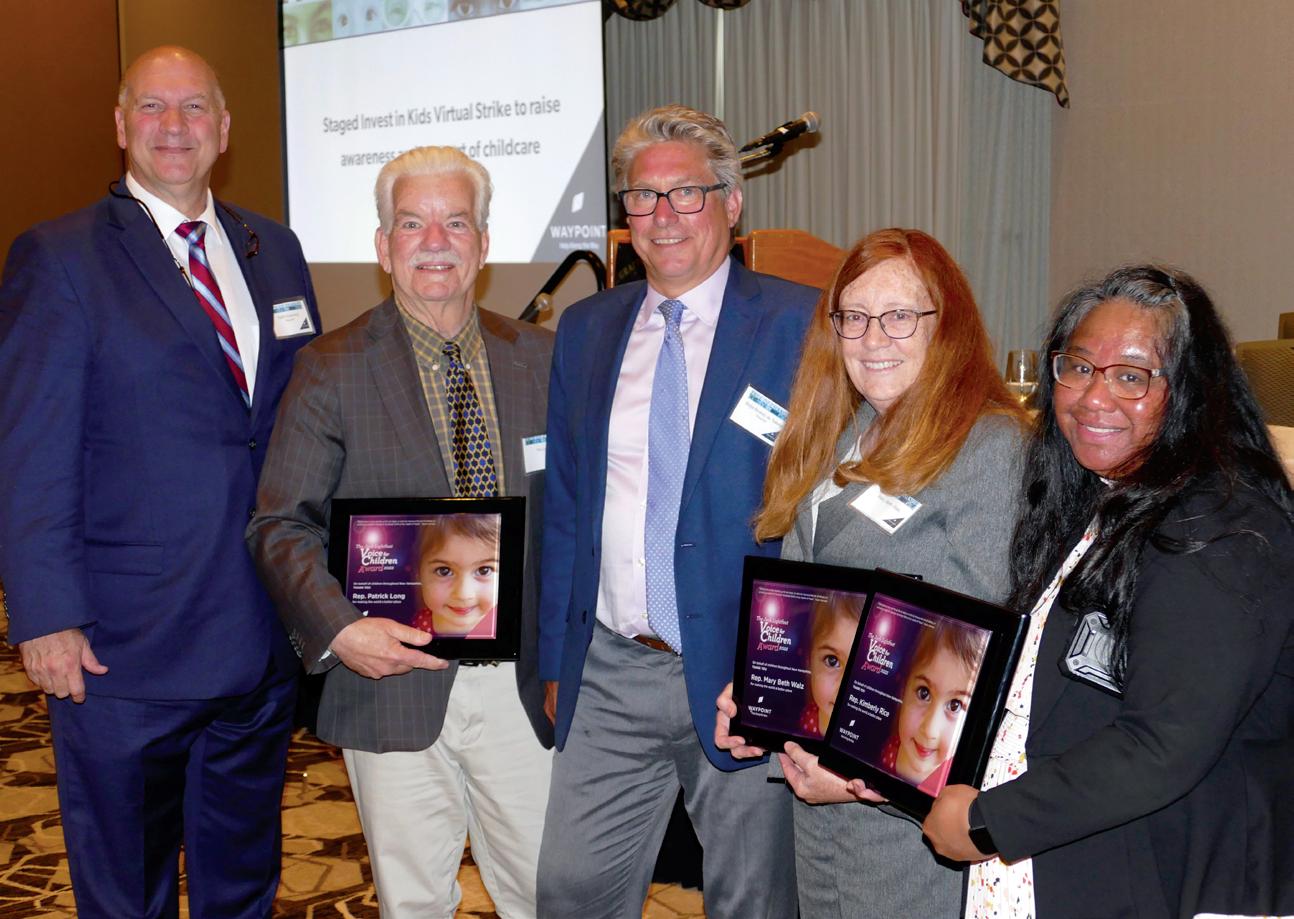
'Why would you want those children mixed in with adults who have committed adult crimes?' Henry said. 'They are still children who should be treated that way and get the help they need to go back out into society and be productive.'
On a cold day in March, 270 people of all walks of life, all across the state, spent a night out in the cold as a way to raise funds to support services to young people experiencing homelessness and take the next step toward ending homelessness in New Hampshire.
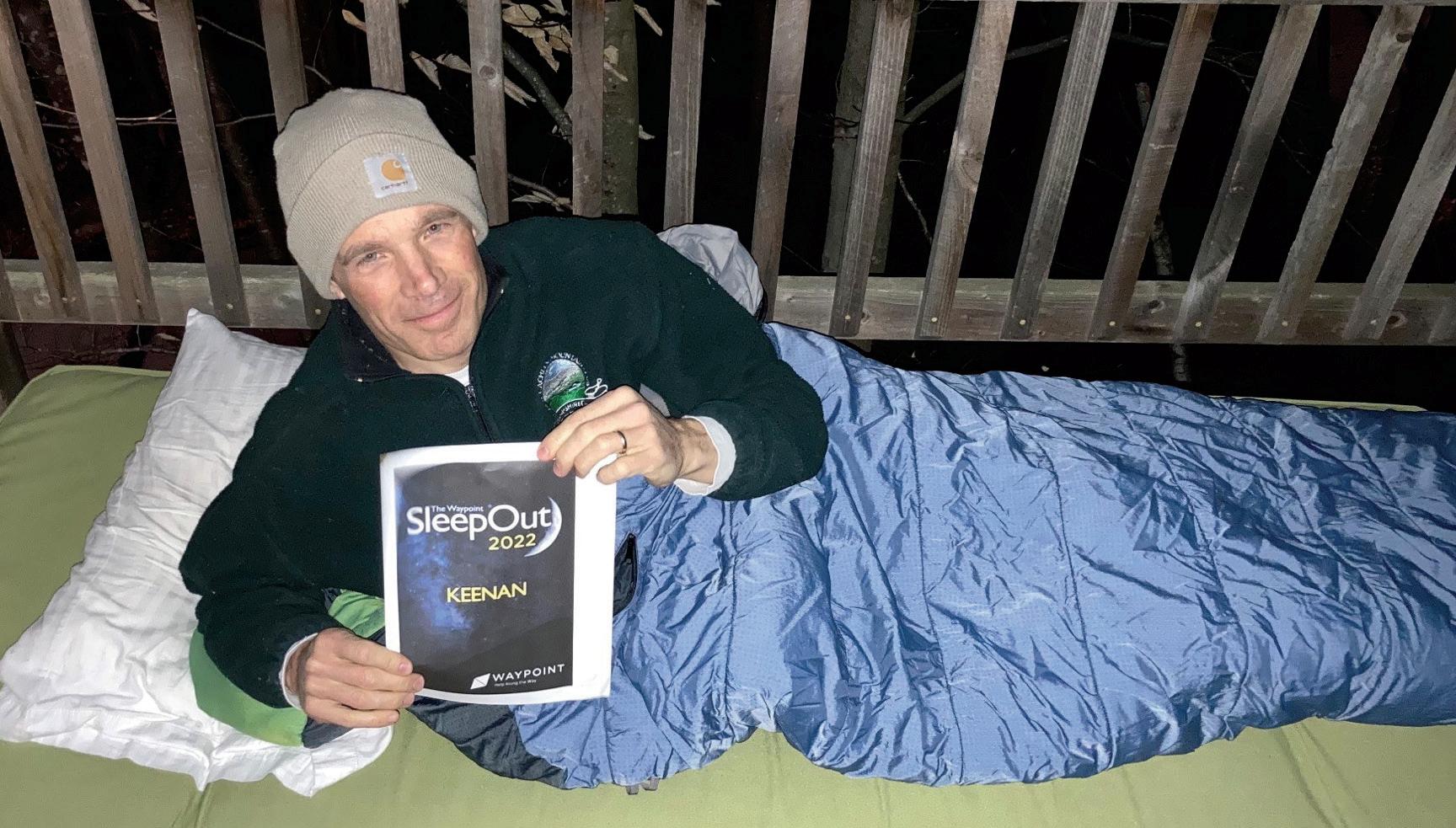
During this important night, sleepers came together online for a livestream event that featured Governor Chris Sununu; Dylan, a young person who was receiving services and would soon be getting his first apartment; and a presentation by Waypoint staff that revealed the agency’s plans for expansion of services in three areas of the state.
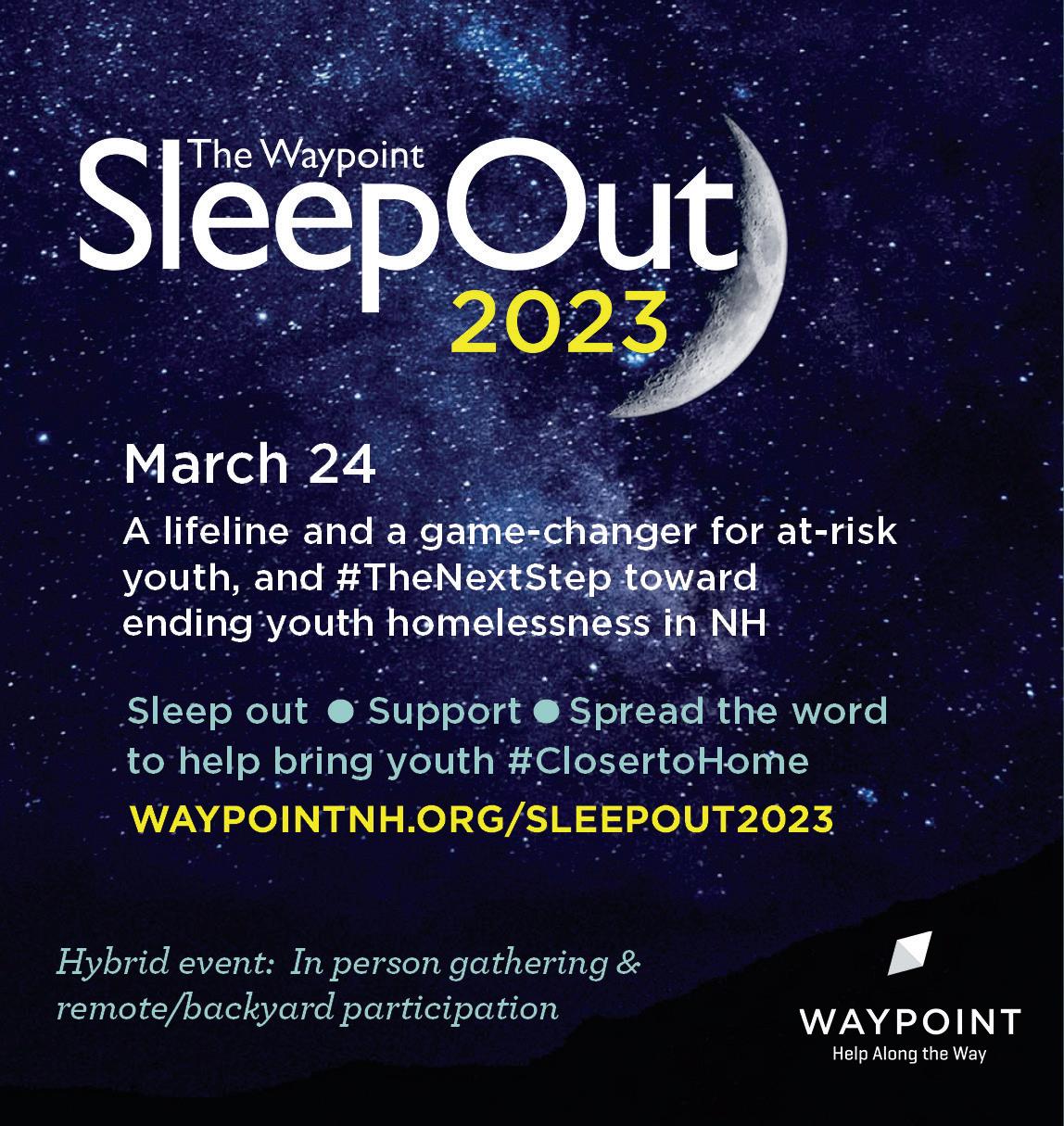
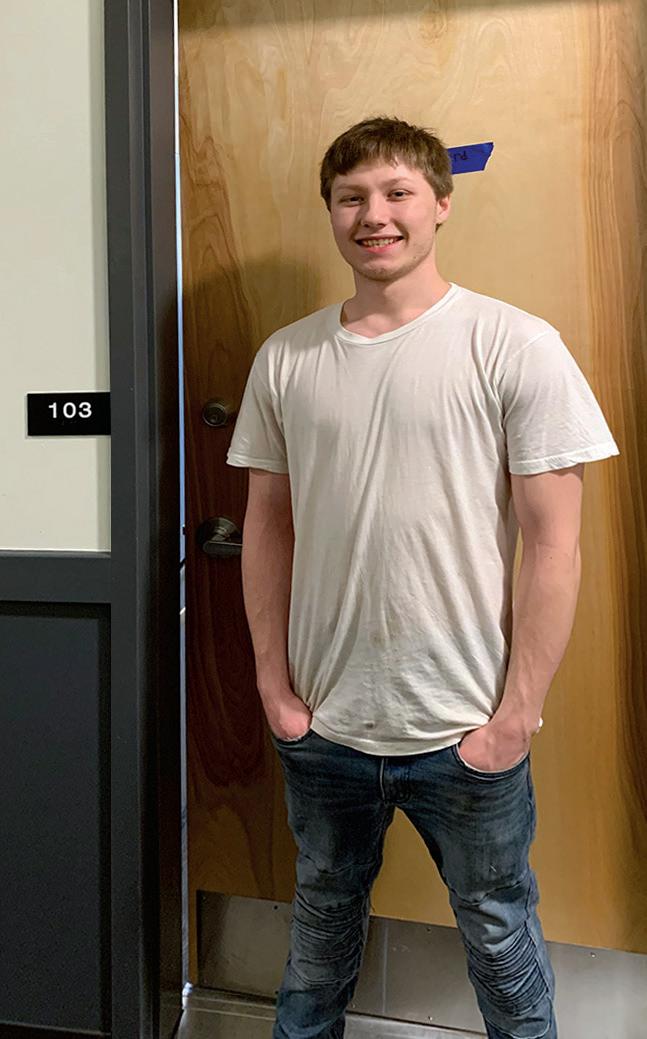

By the next morning, they had raised over $313,000. (See articles on the expansion and a day in the life of the center, on pages 8 and 10. Visit tinyurl.com/daywithDYLAN to view Dylan’s video interview.)
“In light of all that is going on in the world around us,” says Borja Alvarez de Toledo, president and CEO of Waypoint, “we are beyond grateful to live in a community that stays on mission, helping one another through even the most challenging times. On behalf of our board, staff and those we serve, we thank Granite Staters for helping to bring New Hampshire’s most vulnerable youth closer to home.”
From humble beginnings as a small, grass-roots organization that began in Manchester over 172 years ago, Waypoint has grown into a thriving statewide agency with 300 professional staff, 24 programs and 14 locations throughout the state. This success is directly attributed to the foundations and families who have supported our work from the beginning.
Without the annual support of foundations and family funds, Waypoint would not be able to serve the 7,000 people we serve on average each year, ranging from ages 0–110.
Whether it’s feeding the hungry, protecting children, lifting families out of poverty or caring for the elderly, Waypoint and New Hampshire’s network of foundations tackle some of the most difficult social problems that confront our communities. And we do it in ways that neither the government nor individual citizens can.
In all these years, not a day has gone by that we haven’t felt humbled and grateful for this support. We are thrilled to shine a light on some of our recent grants and foundation gifts.
• Annette P. Schmitt Foundation supports our advocacy efforts to shape public policies toward best interests of children.
• Bank of America helps youth and young adults experiencing homelessness.
• The Burkehaven Family Foundation provides hot dinners to our emergency shelter in Manchester.
• Citizens Bank Foundation subsidizes street outreach, which serves as a lifeline to unhoused, unaccompanied youth.
• Healthy Beginnings Endowment helps young children through The Children’s Place and its new diaper pantry.
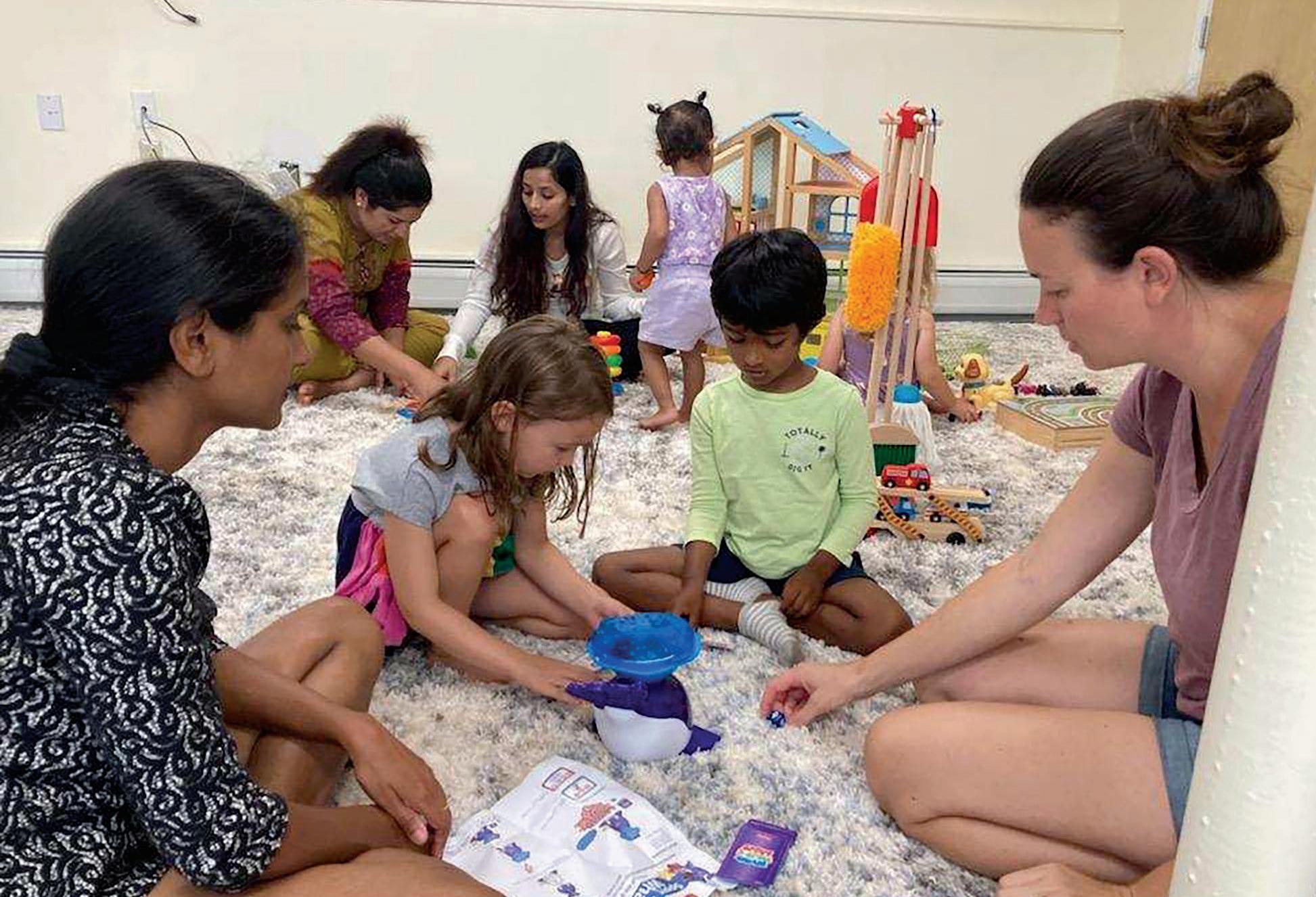
• The Linden Foundation assists families who are caring for a child with a chronic illness.
• M&T Charitable Foundation supports our critical work with youth and young adults experiencing homelessness.
• Mascoma Bank Donation Committee helped renovate the Family Resource Center in the Upper Valley to make the space more family friendly, and to accommodate education and support groups and community gatherings.
• Rolfe & Rumford (through the New Hampshire Charitable Foundation) provides camperships for children from low-income families to attend summer camp.
• Southern New Hampshire University funds education initiatives for youth and young adults experiencing homelessness.
• State Farm Insurance funds driver’s education for youth and young adults experiencing homelessness.
• TD Charitable Foundation supports our work with youth and young adults experiencing homelessness across the state.
• Granite United Way underwrites our
• Merrimack County Savings Bank Foundation supports our new drop-in center for youth and helps to put boots on the ground through our Street Outreach program in Concord.
• Neil and Louise Tillotson Fund (through the New Hampshire Charitable Foundation) supports our Partners in Health program for children in the North Country who have chronic health conditions.
• New Hampshire Charitable Foundation supports our geographic and programmatic expansion of services for youth and young adults experiencing homelessness.
provided unrestricted support for our Rochester Youth Resource Center and our Street Outreach program in the Seacoast and Tri-City regions.
• Administration on Children, Youth, and Families, Family and Youth Services Bureau awarded five 3-year grants to support our work with young people experiencing homelessness. Includes Street Outreach, the Transitional Living Program in Concord and Dover, the Transitional Living Program for pregnant and parenting youth in Littleton and Manchester, and outreach and support for youth under 18
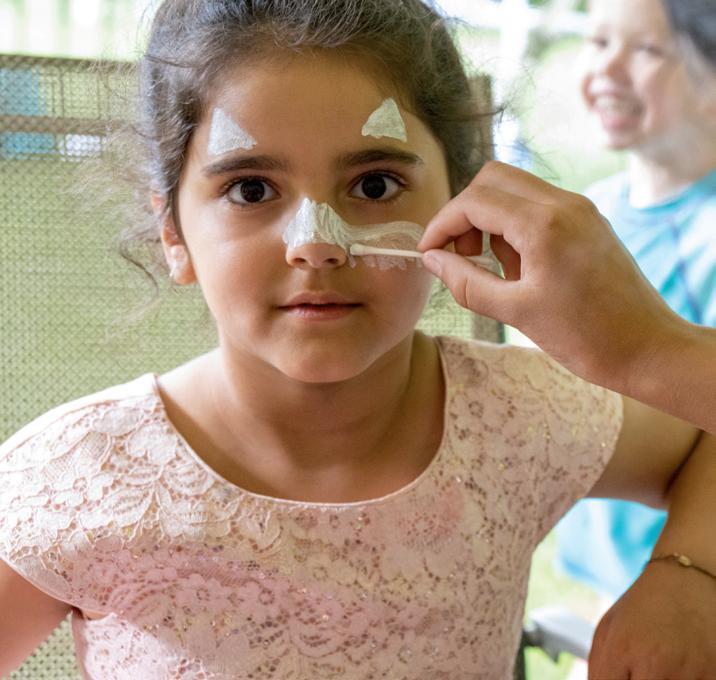

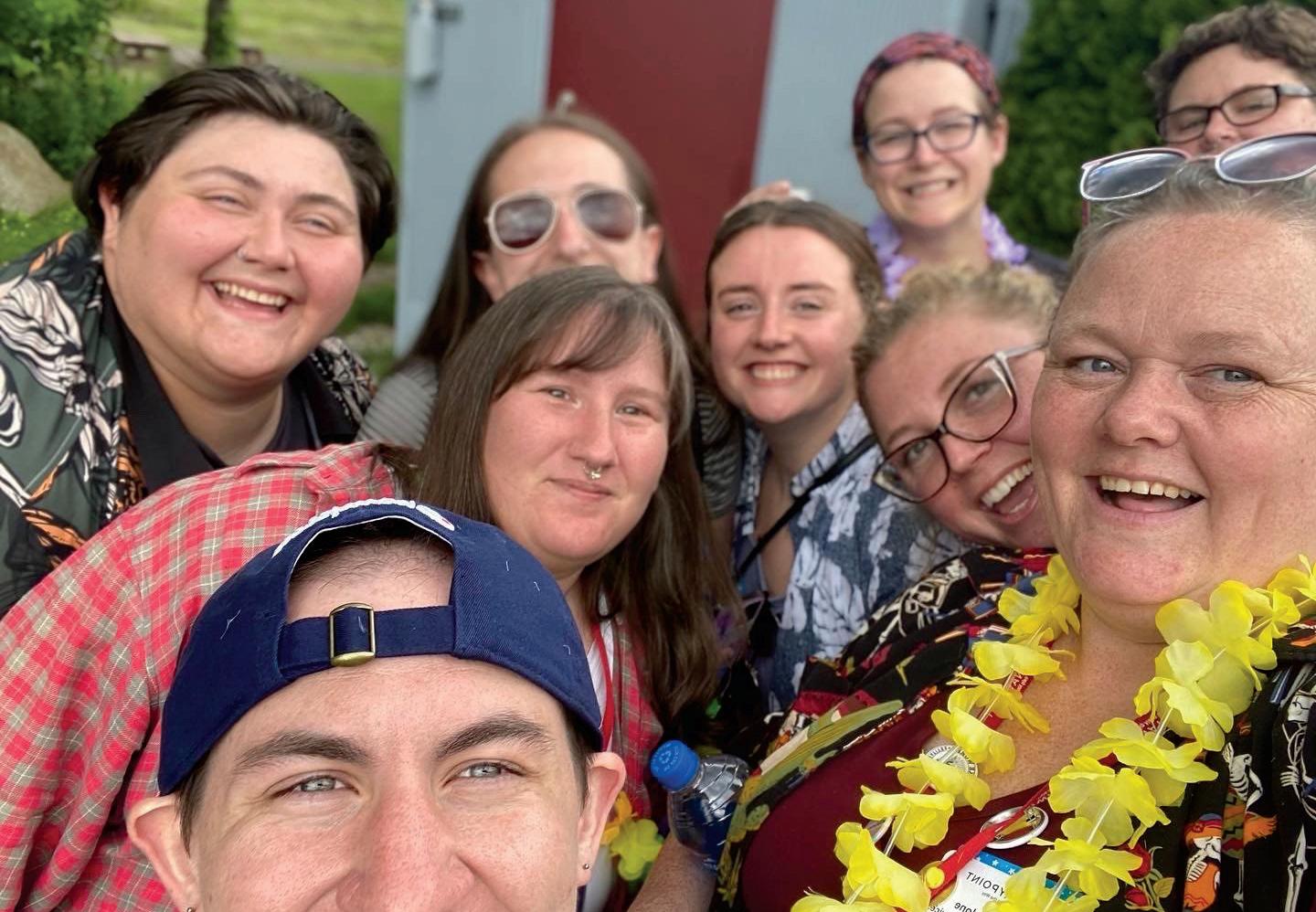









So grateful to members of our Manchester board, who each sponsored a senior in our Home Care program, fulfilling wishes and needs. Pictured here: Catherine Yao.
Our Partners in Health program in Littleton brought together children who have medical conditions, and their families, for a fun day of outdoor adventures!

Waypoint was the nonprofit partner in the 2022 BOB (Best of Business) Awards, presented by NH Business Review. Our Erin George-Kelly, Ellie Huot and Christine Villeneuve volunteered at the masquerade ball.

Youth services staff had a big presence at events across the state during Pride Month.
The Seacoast’s TOUCH-A-TRUCK event, originally staged by Richie McFarland Children’s Center, made its comeback at Pease International Tradeport. The event raised over $20,000 to support early intervention for Seacoast area children. Over 2,000 kids and families turned out including Eddie Sullivan of Exeter (l) and Maya of Newmarket (r).
Elyssa Sadaat of Hanover enjoyed our first annual Summer FamJam, a free concert and picnic at Storrs Pond, Hanover. The event raised over $60,000 for our Upper Valley Family Resource Center. Photo by Nancy Nutile-McMenemy.
Graduation day at The Children’s Place, Concord.
Waypoint's Cindy Gaffney accepts donations from students of Mount Saint Mary Academy who held a pajama drive to collect contributions.
Through a partnership with the Dover NH Police Department, kids in the mentoring program, like Jackson, got shiny new bikes!
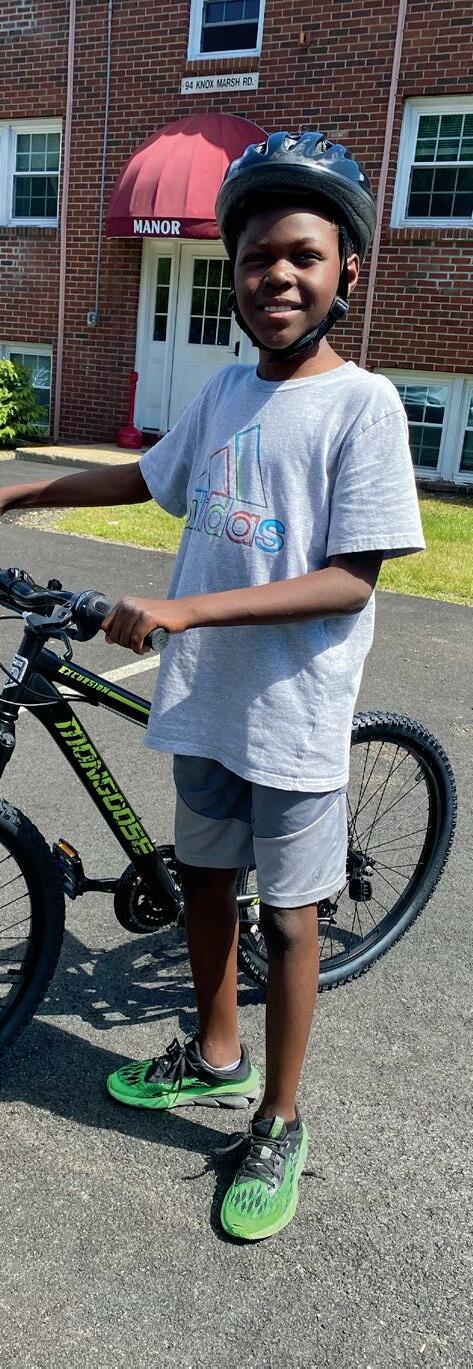
WZID Christmas is for Kids Radiothon continues the tradition of engaging the community in the spirit of the season — making WZID, historically, the agency’s largest supporter.

Kids of all ages, like little Niveth, enjoyed the Halloween open house at our Lebanon Family Resource Center.
“I’m always wishing I was younger,” says Allan, who lives in a small apartment in Manchester. Allan is helped by Waypoint Home Care, which enables seniors and adults with disabilities to remain in their own homes on their own terms, to age in place.
Allan looks back on his life with mixed emotions. In this way, he represents “Joe Everyman” with his share of struggles and successes, work and play, love and loss.
Allan can still drive, but he feels the forces of aging encroaching. The profound weight of growing old alone shapes his daily reality. Loneliness prevails.
Weekly visits from a caregiv er and homemaker, peppered with chats over the phone, just weren't enough to relieve the loneliness. That is, until he was joined by a ginger cat named Buddy.

464 Chestnut St. ° P.O. Box 448 ° Manchester, NH 03105
800.640.6260 ° 603.518.4000

Nonprofit Organization U.S. Postage PAID Manchester, NH Permit No. 6167 464 Chestnut St. ° P.O. Box 448 ° Manchester, NH 03105 800.640.6260 ° 603.518.4000
